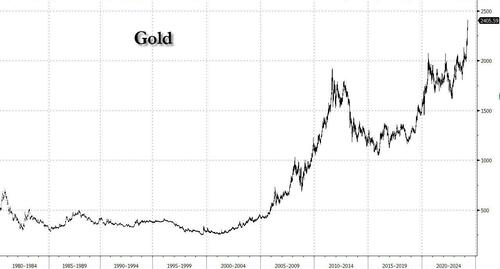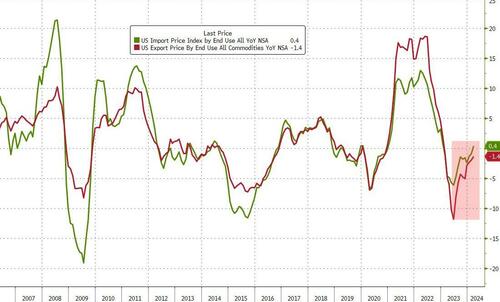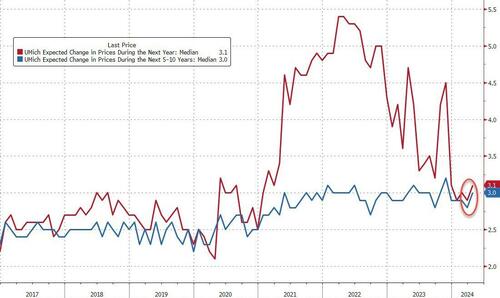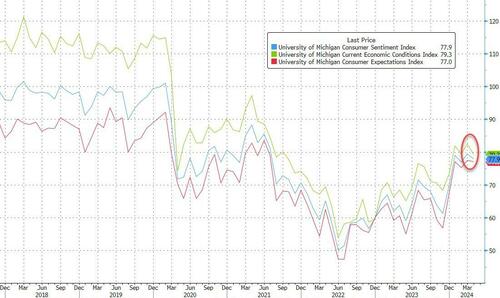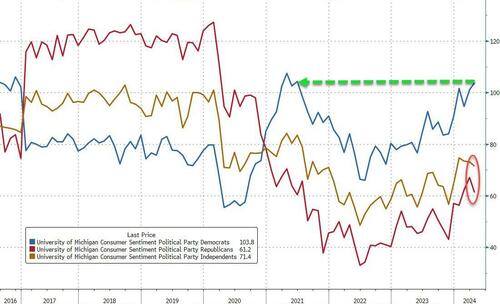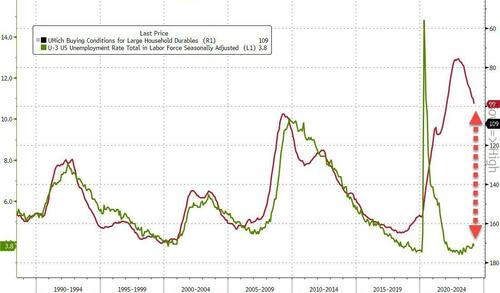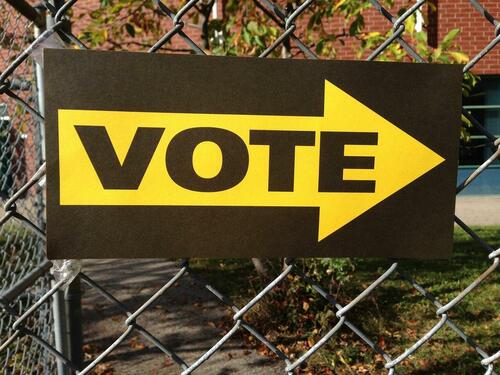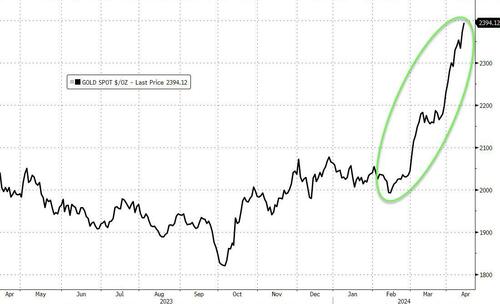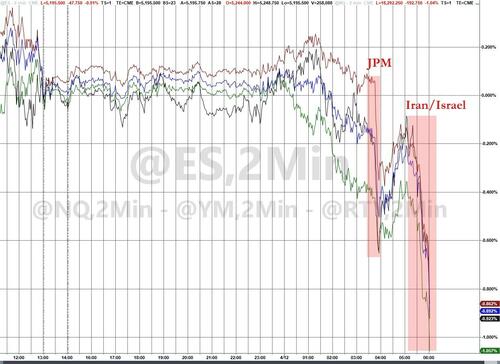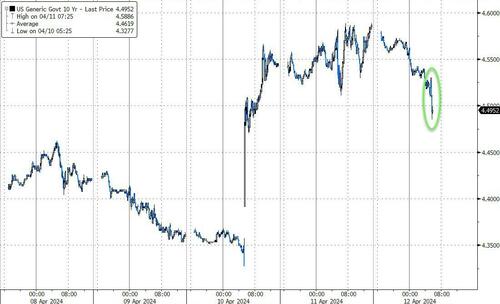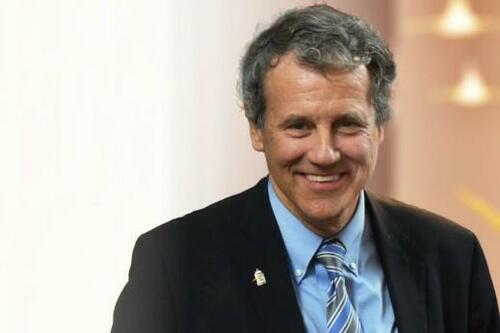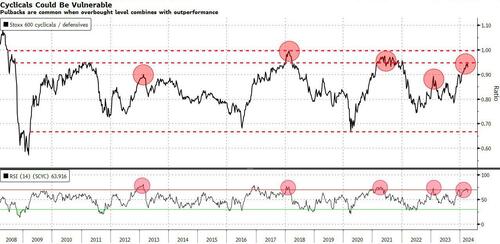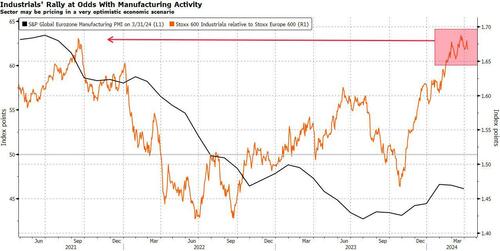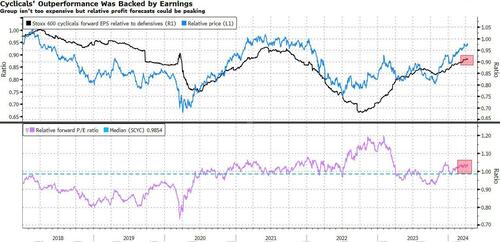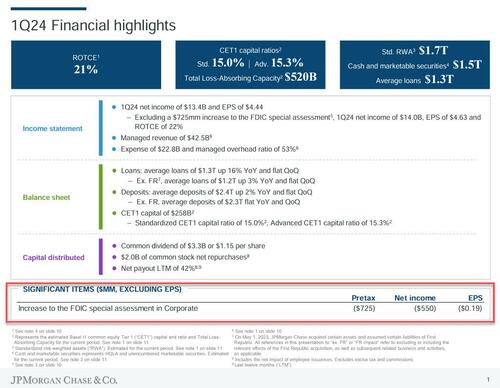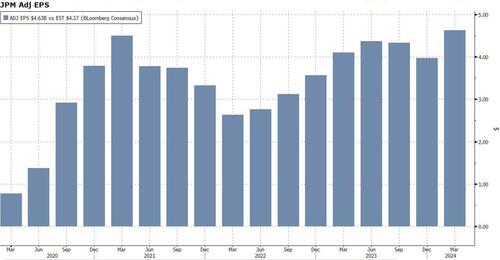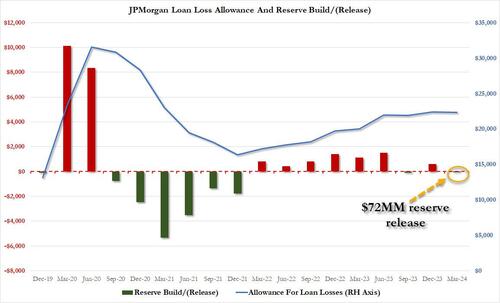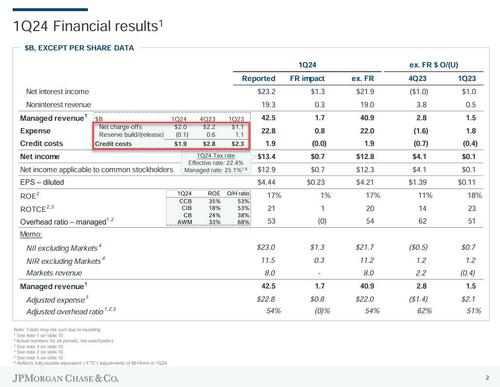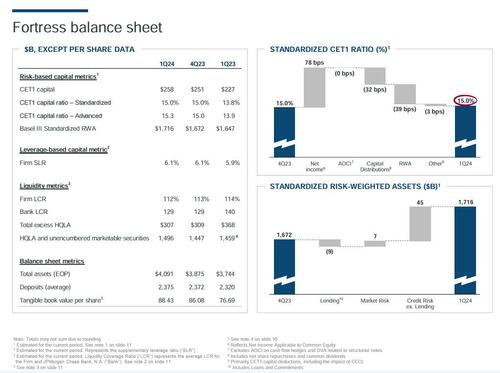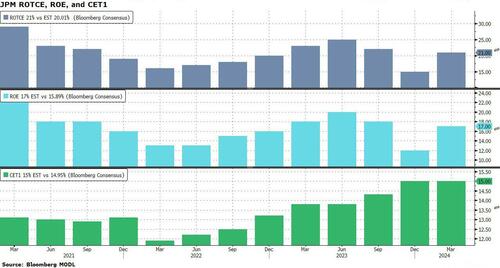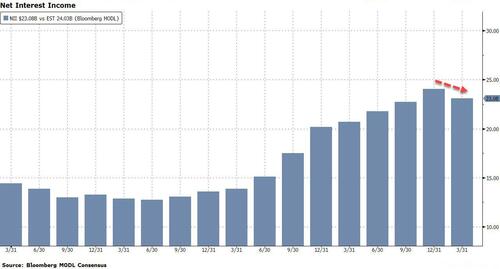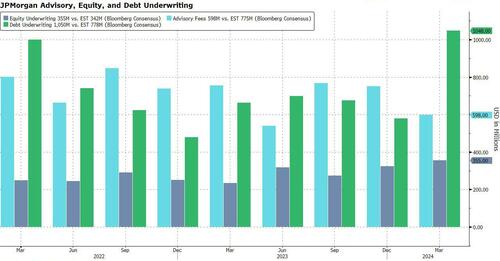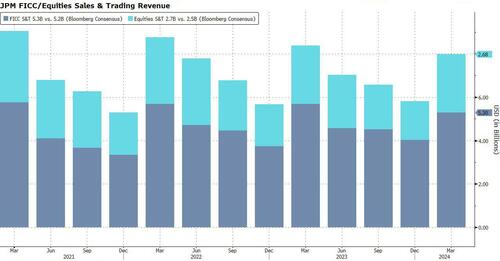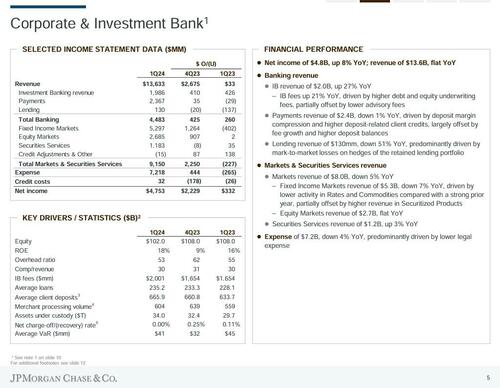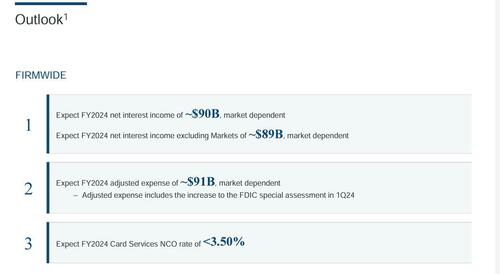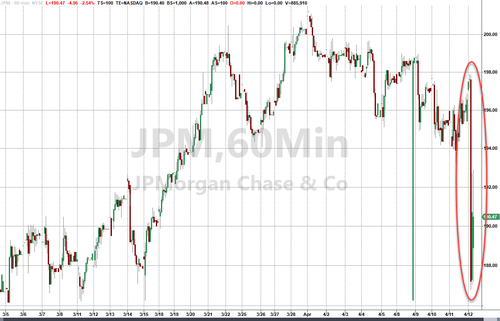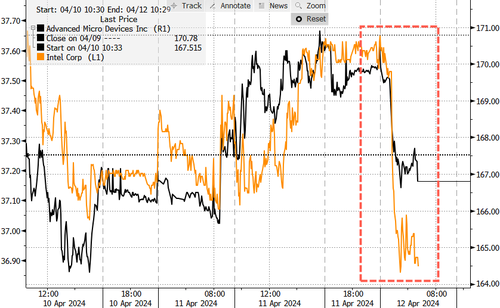For many people today, practical atheism is the normal rule of life...If this attitude becomes a general existential position, then freedom no longer has any standards, then everyting is possible and permissible.
Distinction Matter - Subscribed Feeds
-
Site: Mises InstituteWhile “colorblind equality” has a better ring to it than the DEI regime, nonetheless, the concept is unworkable and actually contributes to worsening racial outcomes.
-
Site: The Remnant Newspaper
-
Site: Fr Hunwicke's Mutual EnrichmentAs we successfully generate more 'ecological' energy, will such an increase stimulate a greater demand for and use of energy?Fr John Hunwickehttp://www.blogger.com/profile/17766211573399409633noreply@blogger.com0
-
Site: Mises InstituteThe inflation news from the Federal Reserve is once again disappointing.
-
Site: Voltaire NetworkUpon instructions from my Government and pursuant to our letter dated 1 April 2024 concerning the Israeli regime's armed attacks against the diplomatic premises of the Islamic Republic of Iran in Damascus, Syrian Arab Republic, which led to the martyrdom of seven Iranian senior military advisers (A/78/838-S/2024/281), I would like to inform you that, in the late hours of 13 April 2024, the Islamic Republic of Iran carried out a series of military strikes on Israeli military objectives. (...)
-
Site: Henrymakow.com
 They are engineering a Conservative reaction and Trump re-election.Dutch monetary theorist Anthony Migchels thinks this will result in a radical change of course. I disagree.Trump is responsible for murdering and maiming millions of people. He should be in jail.My vote goes to RFK Jr. even though his choice of VP was ridiculous. At least RFK Jr. isn't a Cabalist and crypto Jew like Trump. At least he fought Trump's "vaccine."Migchels--"A mega crash is coming, and all indicators suggest they will frame this with 'cyber attacks'."by Anthony Migchels(henrymakow.com)It's been quiet and boring for a while. A lull in between, people are happy the Lockdown 'is behind us', and 'things are returning to normal'.Foolishness, of course. In reality, the last two years we've just been biding time until the elevated interest rates have done their job.The elevated rates are sucking Trillions out of the real economy, a free lunch for the ultra rich at the expense of the masses. The Mega Debt is unpayable and also not serviceable with these rates.What is worse: the rates were raised to 'fight inflation', an inflation that the Fed itself caused with its excess money printing under Trump. However: this week the Fed reported 'core inflation' was 0,4% in March, which is 6% yoy. Which means taking rates down is off the table.Gold is rising, because interest rates vs. inflation are too low. Hence, money is fleeing into Gold, as that does keep up with inflation.The astounding break out of Gold the last month is indicative of time running out.A mega crash is coming, and all indicators suggest they will frame this with 'cyber attacks'.
They are engineering a Conservative reaction and Trump re-election.Dutch monetary theorist Anthony Migchels thinks this will result in a radical change of course. I disagree.Trump is responsible for murdering and maiming millions of people. He should be in jail.My vote goes to RFK Jr. even though his choice of VP was ridiculous. At least RFK Jr. isn't a Cabalist and crypto Jew like Trump. At least he fought Trump's "vaccine."Migchels--"A mega crash is coming, and all indicators suggest they will frame this with 'cyber attacks'."by Anthony Migchels(henrymakow.com)It's been quiet and boring for a while. A lull in between, people are happy the Lockdown 'is behind us', and 'things are returning to normal'.Foolishness, of course. In reality, the last two years we've just been biding time until the elevated interest rates have done their job.The elevated rates are sucking Trillions out of the real economy, a free lunch for the ultra rich at the expense of the masses. The Mega Debt is unpayable and also not serviceable with these rates.What is worse: the rates were raised to 'fight inflation', an inflation that the Fed itself caused with its excess money printing under Trump. However: this week the Fed reported 'core inflation' was 0,4% in March, which is 6% yoy. Which means taking rates down is off the table.Gold is rising, because interest rates vs. inflation are too low. Hence, money is fleeing into Gold, as that does keep up with inflation.The astounding break out of Gold the last month is indicative of time running out.A mega crash is coming, and all indicators suggest they will frame this with 'cyber attacks'. This, I suspect, will result in the following:- Trump coming back and 'restoring order'. Including 'a clean up' of 'The Deep State'.- Trump will 'make peace' with Putin and withdraw from NATO.- He'll retreat from the ME, leaving Zion to their own devices, although of course 'eternal friendship' and 'WMD protection' will be promised.- The goal of these steps is to focus everything they have left on containing China. Europe will be left to fend for themselves against Russia, and a real deal between Berlin and Moscow (a nightmare for the Atlantic Powers) has been scuttled for decades to come with the Ukraine Travesty.- Gold will revalue: the Treasuries as backbone of the Financial System have been shot to pieces: Treasuries are sold with a major discount on the Bond Market, and banks, financial institutions, and States have lost their shirt. Gold will become a tier 1 reserve asset again, but it has to rise in price to play this role (otherwise there wouldn't be sufficient Gold). So Gold suppression is over.Everything will be sold as 'we have fixed things', 'make America Great Again', and 'The Fed is over', 'The New World Order is over!'.But with Gold as reserves instead of Treasuries, debt and money can no longer be printed, and this means DEFLATION. LIkely after a last bout of inflation with QE once the Crash hits. So Stagflation.The geopolitical necessity of the above is the same as what I penned in this article, almost four years ago, and while my timing back then clearly was off, things have not changed: America is imploding and can't maintain their worldwide dominance.The 12 months, the Government has borrowed an extra $4 Trillion. That's a 15% of GDP deficit. No State can survive that, and while the MSM remains quiet, Powell, Dimon, Fink, have all recently said that the Government MUST get spending under control.The problem of which is, that austerity will severely deflate the economy. The Government kept spending to prevent an immediate route for the economy in the face of the elevated interest rates.Jamie Dimon was this week predicting 8% interest rates during the coming 'recession' (Depression). A very dark, but plausible, scenario indeed.And once they have been forced into severely cutting their military spending in the years ahead, they'll be left open for an attack by the Chinese and the Russians.Do not, for one second, buy anything about the coming 'revelations' and 'solutions'.Everything is going according to Plan. Trump is their Trump, and America is toast.-Related -The Trump Counter Revolution-
This, I suspect, will result in the following:- Trump coming back and 'restoring order'. Including 'a clean up' of 'The Deep State'.- Trump will 'make peace' with Putin and withdraw from NATO.- He'll retreat from the ME, leaving Zion to their own devices, although of course 'eternal friendship' and 'WMD protection' will be promised.- The goal of these steps is to focus everything they have left on containing China. Europe will be left to fend for themselves against Russia, and a real deal between Berlin and Moscow (a nightmare for the Atlantic Powers) has been scuttled for decades to come with the Ukraine Travesty.- Gold will revalue: the Treasuries as backbone of the Financial System have been shot to pieces: Treasuries are sold with a major discount on the Bond Market, and banks, financial institutions, and States have lost their shirt. Gold will become a tier 1 reserve asset again, but it has to rise in price to play this role (otherwise there wouldn't be sufficient Gold). So Gold suppression is over.Everything will be sold as 'we have fixed things', 'make America Great Again', and 'The Fed is over', 'The New World Order is over!'.But with Gold as reserves instead of Treasuries, debt and money can no longer be printed, and this means DEFLATION. LIkely after a last bout of inflation with QE once the Crash hits. So Stagflation.The geopolitical necessity of the above is the same as what I penned in this article, almost four years ago, and while my timing back then clearly was off, things have not changed: America is imploding and can't maintain their worldwide dominance.The 12 months, the Government has borrowed an extra $4 Trillion. That's a 15% of GDP deficit. No State can survive that, and while the MSM remains quiet, Powell, Dimon, Fink, have all recently said that the Government MUST get spending under control.The problem of which is, that austerity will severely deflate the economy. The Government kept spending to prevent an immediate route for the economy in the face of the elevated interest rates.Jamie Dimon was this week predicting 8% interest rates during the coming 'recession' (Depression). A very dark, but plausible, scenario indeed.And once they have been forced into severely cutting their military spending in the years ahead, they'll be left open for an attack by the Chinese and the Russians.Do not, for one second, buy anything about the coming 'revelations' and 'solutions'.Everything is going according to Plan. Trump is their Trump, and America is toast.-Related -The Trump Counter Revolution- -
Site: The Orthosphere
(Readers of the comment threads will understand best)
Soon or late, each just man finds
How rare is meeting of two minds,
How scarce the dialectic art,
How each fool thinks himself right smart.If life you’d fill with sad frustration,
Devote yourself to disputation,
For when you correct and explain,
Your words are wind, your efforts vain.A man would rather be afflicted
With hives than be once contradicted,
Or with opposing views distressed,
Since he loves his own notions best.If you must parlay and debate,
Avoid the funny farm inmate,
The dogged crank with glittering eye,
Zealots who bark and preachify.Do not suppose you can assuage,
The man who boils with righteous rage,
His tone you cannot calm or cool,
His wild hair smooth for Sunday school.If views you must air and exchange,
Take care always to arrange,
A partner who enjoys a joke,
No matter how your views provoke.If you’re addicted to palaver,
Do not consort with a cadaver,
Find at all costs a curious man,
Whose mind is not tight-sealed can. -
Site: PeakProsperityThe deeper I went the more I had to learn. Honestly, the Great Taking inquiry and everywhere it led me was similar to the effort that went into my Covid work. The final conclusion? The risks are very real and you need to understand them if you wish to minimize them.
-
Site: PeakProsperityMy Spidey-sense are jangling. The recent price action in gold and oil has me convinced that something big is brewing behind the scenes. Russia’s very successful and deep attacks on Ukrainian gas storage facilities are part of the information cycle which are definitely not getting the attention they deserve in the Western press. The Japanese […]
-
Site: Novus Ordo Watch
The scientific evidence speaks volumes…
The Fatima Center Agrees: After Vatican II, the Public ‘Sister Lucy’ Was Not the Real Fatima Seer

Big news out of Canada: The Fatima Center, the organization founded by ‘Fr.’ Nicholas Gruner for promoting devotion to Our Lady of Fatima and spreading her message, is now officially acknowledging that the oldest of the three seers, Sister Lucia dos Santos, was replaced by an impostor from 1967 onwards, at least in the few public appearances she made.
This announcement was published in a pinned comment by the Fatima Center‘s YouTube channel underneath/beside a video clip that is an extract from a presentation on this very topic by David Rodríguez, the Center‘s content director:

In case the image won’t display, here is the text of the announcement:
The Fatima Center’s position is that it has been established with reasonable certainty that the woman presenting herself as Sister Lucia in all known public photos from 1967 onward was not the true Lucia.
… READ MORE -
Site: Novus Ordo Wire – Novus Ordo Watch
The scientific evidence speaks volumes…
The Fatima Center Agrees: After Vatican II, the Public ‘Sister Lucy’ Was Not the Real Fatima Seer

Big news out of Canada: The Fatima Center, the organization founded by ‘Fr.’ Nicholas Gruner for promoting devotion to Our Lady of Fatima and spreading her message, is now officially acknowledging that the oldest of the three seers, Sister Lucia dos Santos, was replaced by an impostor from 1967 onwards, at least in the few public appearances she made.
This announcement was published in a pinned comment by the Fatima Center‘s YouTube channel underneath/beside a video clip that is an extract from a presentation on this very topic by David Rodríguez, the Center‘s content director:

In case the image won’t display, here is the text of the announcement:
The Fatima Center’s position is that it has been established with reasonable certainty that the woman presenting herself as Sister Lucia in all known public photos from 1967 onward was not the true Lucia.
… READ MORE -
Site: non veni pacemTEL AVIV—Israel is preparing for a direct attack from Iran on southern or northern Israel as soon as Friday or Saturday, according to a person familiar with the matter. Iran has publicly threatened to retaliate for an attack last week in Damascus, Syria, that Tehran said was an Israeli airstrike on a diplomatic building. The strike killed top Iranian military officials, including a senior member of the Islamic Revolutionary Guard Corps’ elite Quds Force.Earlier this week, U.S. intelligence reports showed that an attack on Israeli assets by Iran or its proxies could be imminent, but a source says it now appears that the attack could be within Israel’s borders. A U.S. official with knowledge of the matter said Thursday that American intelligence reports indicate an Iranian retaliatory strike within days, “possibly on Israeli soil” as opposed to Israeli interests elsewhere.On Thursday, the American Embassy in Israel said U.S. government employees and family members would be restricted from any personal travel…until further notice. Gen. Michael Erik Kurilla, commander of U.S. Central Command, which is responsible for military operations in the Middle East, was in Israel on Thursday, defense officials said.
-
Site: LifeNews
The state of Idaho is fighting back against Joe Biden’s attempt to wrap and twist a federal law into a mandate that emergency rooms must double as abortion clinics.
As LifeNews.com has reported, Idaho asking the U.S. Supreme Court to stop the Biden administration from blocking Idaho’s abortion ban that saves babies from abortions.
The Biden administration claims to have discovered a new power in the Emergency Medical Treatment and Labor Act (EMTALA), a law that President Ronald Reagan signed, to require doctors to perform certain abortions in violation of many states’ pro-life laws. But Biden is misusing the law in the attempt to override state abortion bans and falsely declare all abortions as medical emergnecies.
Today, Idaho Attorney General Raúl Labrador filed a brief for Idaho, assisted by attorneys at Alliance Defending Freedom and Cooper & Kirk, with the U.S. Supreme Court in State of Idaho v. United States of America.
He told LifeNews:
“Idaho’s Defense of Life Act is perfectly consistent with the Emergency Medical Treatment and Active Labor Act, which provides explicit protections for ‘unborn children’ in four separate places. But the Biden administration is trying to use one life-affirming law to invalidate another. The administration’s radical interpretation of federal law is nothing more than a reckless disregard for Idaho’s right to protect life. We are asking the Supreme Court to end the administration’s unlawful overreach and to respect the people of Idaho’s decision to safeguard the lives of women and their unborn children.”
HELP LIFENEWS SAVE BABIES FROM ABORTION! Please help LifeNews.com with a donation!
Alliance Defending Freedom Senior Counsel and Vice President of Appellate Advocacy John Bursch agreed.
“The Biden administration has no authority to override Idaho’s law and force emergency room doctors to perform abortions. There is no conflict between Idaho’s Defense of Life Act and EMTALA. Both Idaho’s law and EMTALA seek to protect the lives of women and their unborn children. The Supreme Court should end the Biden administration’s lawlessness and uphold Idaho’s rightful authority to protect life,” he said.
Sen. John Kennedy, who filed an amicus brief supporting the state, also agrees.
“The Biden administration’s case against Idaho’s Defense of Life Act is the president’s latest scheme to force his radical pro-abortion ideology on all Americans. Idaho requires doctors to protect the lives of mothers and their unborn children, and there’s no legal basis for the Biden administration to try to overrule a law that Idahoans passed democratically,” said Kennedy.
“Idahoans have passed a strong law to protect the lives of mothers and the unborn, yet the Biden administration is seeking every opportunity to expand abortion. This administration cherrypicked pieces of existing statute and wrongfully reinterpreted it to fit their agenda. Their manipulation of federal law cannot usurp state law, and there is no federal right to an abortion. This amicus brief demonstrates how the administration’s substantial federal overreach is aimed at undermining pro-life protections not only in Idaho but around the nation,” said Risch.
EMTALA requires hospitals to provide necessary stabilizing treatment to patients before transferring them to another hospital because of the patient’s inability to pay.
The Biden administration claims that EMTALA overrides pro-life state laws and requires doctors to perform abortions in some circumstances. However, the lawmakers’ amicus brief argues that EMTALA says nothing about abortion and actually requires doctors to provide treatment to both a mother and her unborn child.
Last year the Justice Department filed a lawsuit that challenges Idaho’s protective law — arguing that it would prevent medically necessary abortions. Despite false reports that abortion bans would prevent doctors from treating pregnant women for miscarriages or ectopic pregnancies, pro-life doctors confirm that is not the case. Some 35 states have laws making it clear that miscarriage is not abortion and every state with an abortion ban allows treatment for both.
The federal government brought the suit seeking to invalidate the state’s “criminal prohibition on providing abortions as applied to women suffering medical emergencies,” Attorney General Merrick Garland said. It’s the first lawsuit the Biden administration has brought in response to the Supreme Court overturning Roe v. Wade.
Biden hopes to turn emergency rooms in the state in abortion centers.
On behalf of the state of Idaho, attorneys with Alliance Defending Freedom and Cooper & Kirk assisted the Idaho Attorney General’s office in filing an emergency application for stay pending appeal Monday with the U.S. Supreme Court in State of Idaho v. United States of America. The case involves the Biden administration’s unlawful attempt to use a law that ensures indigent patients receive emergency room care to force doctors to perform abortions that are illegal under Idaho law.
The motion asks the nation’s high court to immediately halt the 9th Circuit’s ruling holding that the federal Emergency Medical Treatment and Labor Act preempts Idaho’s Defense of Life Act. Idaho’s pro-life law imposes penalties on physicians who perform prohibited abortions unless doing so is necessary to save the life of the pregnant woman or other exceptions apply. The federal government claims—and the lower court ruled—that EMTALA requires abortions in violation of this law if an emergency room doctor thinks it is appropriate.
“Hospitals—especially emergency rooms—are centers for preserving life. The government has no business transforming them into abortion clinics,” said ADF Senior Counsel Erin Hawley, vice president of the Center for Life and regulatory practice. “Emergency room physicians can, and do, treat ectopic pregnancies and other life-threatening conditions. But elective abortion is not life-saving care—it ends the life of the unborn child—and the government has no authority to override Idaho’s law barring these procedures. We urge the Supreme Court to halt the lower court’s injunction and allow Idaho emergency rooms to fulfill their primary function—saving lives.”
After the Supreme Court returned the issue of abortion to the states in Dobbs v. Jackson Women’s Health Organization, the federal government sued the state of Idaho, claiming that EMTALA, an ancillary provision of the Medicare statute, preempts Idaho’s pro-life law. But as explained in the emergency application, “EMTALA is silent on abortion and actually requires stabilizing treatment for the unborn children of pregnant women.”
“The United States’ position conflicts with the universal agreement of federal courts of appeal that EMTALA does not dictate a federal standard of care or displace state medical standards. The district court accepted the United States’ revisionist, post-Dobbs reading of EMTALA and enjoined Idaho’s Defense of Life Act in emergency rooms. The district court’s injunction effectively turns EMTALA’s protection for the uninsured into a federal super-statute on the issue of abortion, one that strips Idaho of its sovereign interest in protecting innocent, human life and turns emergency rooms into a federal enclave where state standards of care do not apply,” the application further notes.
ADF attorneys are litigating a similar case in Texas that is currently before the U.S. Court of Appeals for the 5th Circuit. In that case, State of Texas v. Becerra, a district court in Texas blocked the Biden administration’s attempt to force emergency rooms doctors to perform elective abortions.
Idaho’s abortion ban permits a physician who does an abortion to raise the affirmative defense that the abortion was necessary to save the mother’s life or that the pregnancy resulted from rape or incest that was reported. In both cases, the physician must choose a procedure that is most likely to save the life of the baby and protect the mother. The law explicitly excludes contraception from the definition of abortion, and women upon whom abortions are performed may not be prosecuted.
The pro-life laws in Idaho and other states include clearly defined exceptions that allow abortions in the cases when a mother’s life is at risk. Because the pro-life movement cares about the lives of both mother and child and there are rare cases in which only the mother’s life can be saved, it supports such exceptions.
But these exceptions mean the Biden administration’s guidance is unnecessary. Undermining Idaho’s life-saving efforts and expanding abortions appear to be the administration’s real goal.

The post Idaho Fights Back Against Biden’s Attempt to Turn ERs Into Abortion Clinics appeared first on LifeNews.com.
-
Site: The Remnant Newspaper - Remnant ArticlesOn 25 March 2024, Pope Francis signed a “Declaration on Human Dignity.” To anticipate, the document presents familiar teachings on a new foundation which is intrinsically plastic, and that is its danger.
-
Site: LifeNews
Former President Donald trump today called on the Arizona legislature to revise a state Supreme Court decision upholding a pro-life law protecting babies from abortions.
The Arizona Supreme Court ruled Tuesday to uphold the state’s pro-life law as written by overturning a lower court decision that misinterpreted the law.
“We conclude that [Arizona’s law] does not create a right to, or otherwise provide independent statutory authority for, an abortion that repeals or restricts [the law], but rather is predicated entirely on the existence of a federal constitutional right to an abortion since disclaimed by Dobbs v. Jackson Women’s Health Organization,” the court wrote in its opinion in Planned Parenthood Arizona v. Mayes. “Absent the federal constitutional abortion right, and because [the law] does not independently authorize abortion, there is no provision in federal or state law prohibiting [the law’s] operation. Accordingly, [Arizona’s law] is now enforceable.”
The former president directly called on the legislature and governor to “remedy” the ruling in a Friday Truth Social post, repeating the law goes “too far” to protect unborn children. Trump says he wants rape and incest exceptions added to it.
“The Supreme Court in Arizona went too far on their Abortion Ruling, enacting and approving an inappropriate Law from 1864. So now the Governor and the Arizona Legislature must use HEART, COMMON SENSE, and ACT IMMEDIATELY, to remedy what has happened,” Trump posted. “Remember, it is now up to the States and the Good Will of those that represent THE PEOPLE. We must ideally have the three Exceptions for Rape, Incest, and Life of the Mother. This is important!”
“Democrats are the EXTREMISTS – They support Abortion up to the moment of birth, and even execution of Babies, in some cases, after birth. This should not be. Arizona Legislature, please act as fast as possible!” the former president concluded.
HELP LIFENEWS SAVE BABIES FROM ABORTION! Please help LifeNews.com with a donation!
After the Arizona Supreme Court upheld the state’s abortion ban, one of the big attacks against it is that the 1864 law supposedly doesn’t represent the will of the people and is antiquated. Trump referred to that in his post.
But that contention is not true.
First, the judges on the Arizona Supreme Court represent the people. The seven justices on the state’s highest court are initially appointed by the governor to serve. They then stand for a retention vote for regular terms of six years and that is a ballot vote cast by Arizona voters. As a result, the justices represent the people via electing the governor and electing them directly.
Secondly, the law was affirmed twice after it was initially approved in 1864. As CatholicVote notes in an article:
The over century-and-a-half-old law is set to replace the state’s existing pro-life law which only protects most unborn children after 15 weeks gestation.
Republican then Gov. Doug Ducey signed the significantly weaker legislation into law in March 2022. Less than three months later, the U.S. Supreme Court decided Dobbs v. Jackson Women’s Health Organization overturning Roe v. Wade.
The Arizona Supreme Court held that the 2022 law “is predicated entirely on the existence of a federal constitutional right to an abortion since disclaimed” by the Dobbs decision.
Axios reported that “[a] provision of the 2022 law had affirmed it wasn’t repealing the 19th-century law.”
FOX News noted that the 1864 law “was codified in 1913 after Arizona became a state” and “includes an exception in cases where the mother’s life is at risk.”
Planned Parenthood was challenging the potential reinstatement of the state’s near-total abortion ban from 1864, which has exceptions for life-threatening emergencies, but had been blocked by 1973 Roe v. Wade decision. The Dobbs ruling should allow it to go into effect but the nation’s biggest abortion business challenged it.
Alliance Defending Freedom attorneys represented Dr. Eric Hazelrigg, an obstetrician and medical director of Choices Pregnancy Center in Arizona, who filed a petition last March asking the state’s high court to review an Arizona Court of Appeals ruling.
The appellate court’s ruling misinterpreted state law, against its plain meaning, to allow abortion in circumstances where the Arizona Legislature prohibited it. It also enjoined officials from fully enforcing the state’s pro-life law to protect unborn children. The Arizona Supreme Court reversed this ruling, allowing the law to be enforced as written.
“Life is a human right, and today’s decision allows the state to respect that right and fully protect life again—just as the legislature intended,” said ADF Senior Counsel Jake Warner, who argued before the court. “Life begins at conception. At just six weeks, unborn babies’ hearts begin to beat. At eight weeks, they have fingers and toes. And at 10 weeks, their unique fingerprints begin to form. Arizona’s pro-life law has protected unborn children for over 100 years, and the people of Arizona, through their elected representatives, have repeatedly affirmed that law, including as recently as 2022. We celebrate the Arizona Supreme Court’s decision that allows the state’s pro-life law to again protect the lives of countless, innocent unborn children.”
In September 2022, the Arizona Superior Court in Pima County appointed Dr. Hazelrigg as the substitute guardian ad litem to legally represent the best interests of unborn children in Arizona, a role Arizona courts have recognized for over 50 years.

The post Trump Calls on Arizona Legislature to Add Rape and Incest Exceptions to Pro-Life Law appeared first on LifeNews.com.
-
Site: LifeNews
Rachel Watts reported for CBC News on April 12, 2024 that a quadriplegic man, Normand Meunier (66) “chose” to die by (MAiD) after developing a severe bedsore at a hospital in Saint-Jérôme, Québec. Meunier experienced a tragic spinal chord injury in 2022.
Sylvie Brosseau told CBC news that:
Before being admitted to an intensive care bed for his third respiratory virus in three months this winter, Meunier was stuck on a stretcher in the emergency room for four days.
His partner, Sylvie Brosseau, says without having access to a special mattress, Meunier developed a major pressure sore on his buttocks that eventually worsened to the point where bone and muscle were exposed and visible — making his recovery and prognosis bleak.
“Ninety-five hours on a stretcher, unacceptable,” Brosseau told Radio-Canada in an interview.
“Every time we go to the hospital, it’s my duty to tell them that Normand is quadriplegic and needs an alternating pressure mattress … I don’t understand how this can happen, because a mattress is the most basic thing.”
Meunier’s death by euthanasia is one of many stories of people who “choose” to die after receiving negligent medical care.
Jean-Pierre Beauchemin, a retired geriatrician and professor at Université Laval’s faculty of medicine tod CBC news:
“When you’re lying down, always in the same position, there’s hyper-pressure between the bone and the skin,”
Get the latest pro-life news and information on X (Twitter). Follow @LifeNewsHQ//
“A pressure sore can open in less than 24 hours, and then take a very long time to close.”
The buttocks, heels, elbows and knees are particularly vulnerable.
A rotation schedule every two hours is generally necessary for a person confined to bed, according to a Quebec Health Ministry reference sheet.
Steven Laperrière, the director general of the Regroupement des activistes pour l’inclusion au Québec (RAPLIQ), which supports people with disabilities told CBC news:
“That whole story is a crying shame,”
“It’s really a case of disbelief … What are we doing in order to help disabled persons or sick people to live in dignity prior to dying in dignity?”
He says the health-care institution was “negligent to say the least” and that getting a proper mattress is not like “trying to get a space shuttle into orbit.”
“It’s pretty basic … Nobody will convince me that within a few hours the proper mattress could not have been found,” said Laperrière.
“To me, that’s totally a lack of professionalism,” said Laperrière, who says Meunier “would probably still be alive today” if staff had “been really professional about it.”
Trudo Lemmens, The Scholl Chair in Health Law and Policy at the University of Toronto said that this case is “an illustration of problems in our health-care system.” Lemmens told CBC news:
“Then the system responds by saying: ‘well, you have access to medical assistance and dying,'”
“Medical assistance in dying is more easily available and on a more regular basis than some of the most basic care.”
He says he is increasingly hearing stories of people who are struggling in the system and turn to MAID.
“It’s deeply troubling,”
Watts reported that along with Brosseau, Moelle épinière et motricité Québec (MÉMO-Qc), an advocacy group for people with disabilities, is now demanding the Quebec government launch an independent inquest into Meunier’s death. They believe the health authority’s internal investigation is insufficient.
The disability group is seeking a meeting with Christian Dubé, Quebec’s health minister, concerning the circumstances and lack of care that people with disabilities are experiencing in Québec.
By the way, euthanasia is all about “choice”, “freedom” and “autonomy.”
LifeNews.com Note: Alex Schadenberg is the executive director of the Euthanasia Prevention Coalition and you can read his blog here.

The post Doctors Euthanized Quadriplegic Man After Leaving Him on a Stretcher for 4 Days appeared first on LifeNews.com.
-
Site: Henrymakow.com
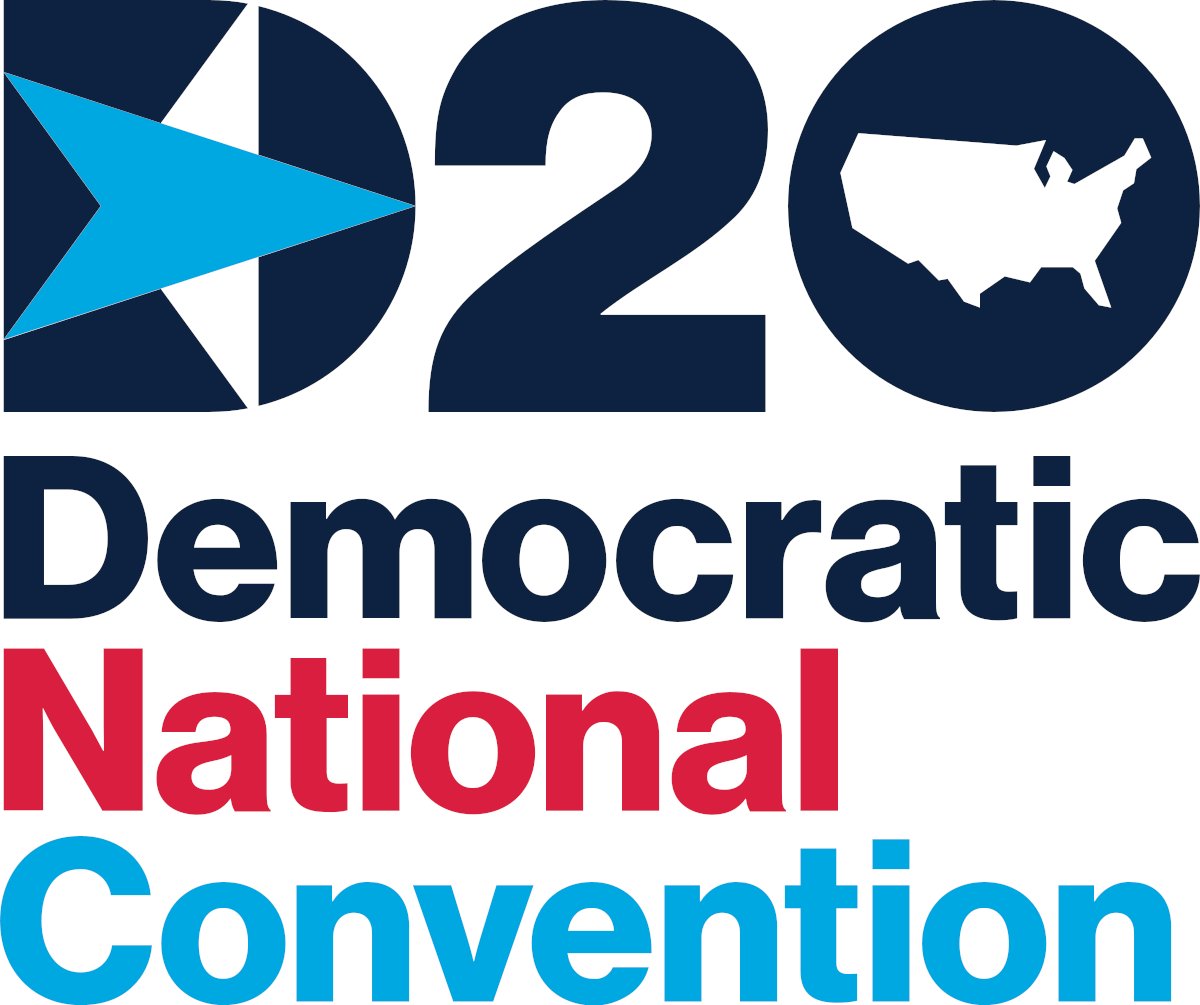 This was the official logo of the 2020 Democratic Party Convention that nominated Biden."Death" (Satanic Star of Baphomet) to America. For once, a politician keeps his promise and no one notices.Please send links and comments to hmakow@gmail.comIn the two years since I have had this logo posted on my site, NO ONE has evermentioned or acknowledged it. Talk about hiding in plain sight!Cognitive Dissonance protects them.--Job depends on political views- Zionists are just like CommunistsWill Mandatory Support of Israel Soon Replace Mandatory COVID Vaccines as a Condition for Employment? Support for Israel Already Mandated in 38 StatesThey are called "Anti-BDS laws", and they have bipartisan support.Attempts have been made by the U.S. Congress to make this a federal law, but those efforts have stalled, so far, due to First Amendment concerns about Free Speech.---Canadian Government wasted $2 Billion Vaccines No Want WantsRebel News reporter Tamara Ugolini looks at secret, exclusive documents obtained by Rebel News which reveal the Trudeau Liberals have wasted over $2 billion on COVID vaccines -- and showed that the safety profile of the vaccine was never guaranteed.Where is Pierre Poilievre on this issue??? He should rake Fidelito over the coals.----SARAH SUSANNA: "3 YEARS SINCE I GOT THE JOHNSON & JOHNSON SHOT THAT ABSOLUTELY WRECKED MY LIFE"Big Tech keeps deleting her video of sharing her story, so let's make sure everyone sees it---Emergency' Fed rate cut by June, only 6 U.S. banks will be left by 2025 paving way for CBDC - Dowdhttps://www.youtube.com/watch?v=A2G3MAxdZfU&t=129sEdward Dowd, Founder of Phinance Technologies and former BlackRock fund manager, and Michelle Makori, Editor-in-Chief and Lead Anchor at Kitco News, discuss the Federal Reserve's latest rate hikes, and why Dowd thinks Fed Chair Powell will be "forced" to cut rates by June of 2023, leading to a "controlled implosion" of the banking sector. Dowd forecasts that as banks consolidate, only 6 major banks will be left standing by 2025, paving the way for Central Bank Digital Currencies (CBDCs), digital fiat tokens issued and controlled by central banks. This, Dowd claims, could lead to "total government control" and a potentially dystopian future .Dowd also sees the dollar losing its dominance on the world stage with a "kinetic war" breaking out as the BRICS countries launch their own reserve currency.----
This was the official logo of the 2020 Democratic Party Convention that nominated Biden."Death" (Satanic Star of Baphomet) to America. For once, a politician keeps his promise and no one notices.Please send links and comments to hmakow@gmail.comIn the two years since I have had this logo posted on my site, NO ONE has evermentioned or acknowledged it. Talk about hiding in plain sight!Cognitive Dissonance protects them.--Job depends on political views- Zionists are just like CommunistsWill Mandatory Support of Israel Soon Replace Mandatory COVID Vaccines as a Condition for Employment? Support for Israel Already Mandated in 38 StatesThey are called "Anti-BDS laws", and they have bipartisan support.Attempts have been made by the U.S. Congress to make this a federal law, but those efforts have stalled, so far, due to First Amendment concerns about Free Speech.---Canadian Government wasted $2 Billion Vaccines No Want WantsRebel News reporter Tamara Ugolini looks at secret, exclusive documents obtained by Rebel News which reveal the Trudeau Liberals have wasted over $2 billion on COVID vaccines -- and showed that the safety profile of the vaccine was never guaranteed.Where is Pierre Poilievre on this issue??? He should rake Fidelito over the coals.----SARAH SUSANNA: "3 YEARS SINCE I GOT THE JOHNSON & JOHNSON SHOT THAT ABSOLUTELY WRECKED MY LIFE"Big Tech keeps deleting her video of sharing her story, so let's make sure everyone sees it---Emergency' Fed rate cut by June, only 6 U.S. banks will be left by 2025 paving way for CBDC - Dowdhttps://www.youtube.com/watch?v=A2G3MAxdZfU&t=129sEdward Dowd, Founder of Phinance Technologies and former BlackRock fund manager, and Michelle Makori, Editor-in-Chief and Lead Anchor at Kitco News, discuss the Federal Reserve's latest rate hikes, and why Dowd thinks Fed Chair Powell will be "forced" to cut rates by June of 2023, leading to a "controlled implosion" of the banking sector. Dowd forecasts that as banks consolidate, only 6 major banks will be left standing by 2025, paving the way for Central Bank Digital Currencies (CBDCs), digital fiat tokens issued and controlled by central banks. This, Dowd claims, could lead to "total government control" and a potentially dystopian future .Dowd also sees the dollar losing its dominance on the world stage with a "kinetic war" breaking out as the BRICS countries launch their own reserve currency.---- What hasn't this story been told? Because Commie Jews did this and they still control us.Gulag, the Story - Part 1(1918-1936) | FULL DOCUMENTARY20 million people in 5000 concentration campsA major political, historical, human and economic fact of the 20th century, the Gulag, the extremely punitive Soviet concentration camp system, remains largely unknown.The history of the Gulag is long, complex and in many ways out of the ordinary. From the Revolution of 1917 to Gorbachev, touching on the civil war, the Great Terror, World War II, the Cold War and the death of Stalin, this series describes the workings of the Gulag.How and why did the USSR create this system of forced-labour camps in which 20 million prisoners were exploited and worked to the bone?-
What hasn't this story been told? Because Commie Jews did this and they still control us.Gulag, the Story - Part 1(1918-1936) | FULL DOCUMENTARY20 million people in 5000 concentration campsA major political, historical, human and economic fact of the 20th century, the Gulag, the extremely punitive Soviet concentration camp system, remains largely unknown.The history of the Gulag is long, complex and in many ways out of the ordinary. From the Revolution of 1917 to Gorbachev, touching on the civil war, the Great Terror, World War II, the Cold War and the death of Stalin, this series describes the workings of the Gulag.How and why did the USSR create this system of forced-labour camps in which 20 million prisoners were exploited and worked to the bone?- mRNA COVID jabs caused one in four Saudis to suffer heart issues, "bombshell" study findsNearly 10 percent of the participants had to receive medical care for their injuries for more than 12 months while 7.11 percent were undergoing some kind of continuous and ongoing treatment at the time of the survey.Amazingly, only about 20 percent of study participants indicated that they believe their cardiac symptoms were "strongly related" or "somewhat related" to the injections. A full 65 percent were either "neutral," "somewhat not confident," or "not confident at all" that the shots were to blame.-In response to "April 11 - Keep Your Eye on the Big Picture":"The attraction for Iranians were clear: acceptance and access. This was acceptance into an international intellectual brotherhood with access to radical whig ideas that were both progressive and iconoclastic. Almost every political leader in the Constitutional Revolution of 1906 was the member of a single lodge - Iran Awakening - in Tehran."This seems unbelievable for an 'anti-Freemason' government to be founded on Freemasonry, yet here it is in mainstream media. This is a direct contradiction to what we're told.-
mRNA COVID jabs caused one in four Saudis to suffer heart issues, "bombshell" study findsNearly 10 percent of the participants had to receive medical care for their injuries for more than 12 months while 7.11 percent were undergoing some kind of continuous and ongoing treatment at the time of the survey.Amazingly, only about 20 percent of study participants indicated that they believe their cardiac symptoms were "strongly related" or "somewhat related" to the injections. A full 65 percent were either "neutral," "somewhat not confident," or "not confident at all" that the shots were to blame.-In response to "April 11 - Keep Your Eye on the Big Picture":"The attraction for Iranians were clear: acceptance and access. This was acceptance into an international intellectual brotherhood with access to radical whig ideas that were both progressive and iconoclastic. Almost every political leader in the Constitutional Revolution of 1906 was the member of a single lodge - Iran Awakening - in Tehran."This seems unbelievable for an 'anti-Freemason' government to be founded on Freemasonry, yet here it is in mainstream media. This is a direct contradiction to what we're told.- Japanese Official Sounds the Alarm: 'Pandemic Was a Hoax To Push Depopulation Drugs' - The People's VoiceHe warns that the result of rolling out Covid mRNA vaccines has led to "the induction of the terrible drug-induced injury that has never [been] seen in human history."--Dr. Vernon Coleman: They Want To Kill You - Here's How They'll Do It"This is the scariest video you'll ever watch."Everything you think you know about euthanasia is almost certainly wrong.Euthanasia is about saving money, collecting organs for the super- rich, killing disabled children, killing the mentally ill and reducing the money spent on caring for the poor and the disabled and patients in pain. Euthanasia isn't painless and it's all about saving money and harvesting organs for the rich.-The US Centers for Disease Control and Prevention (CDC) recently released 780,000 previously undisclosed reports about a wide array of adverse effects after COVID-19 vaccination, years after the federal government undertook an intensive campaign to delegitimize such talk as "harmful misinformation."-
Japanese Official Sounds the Alarm: 'Pandemic Was a Hoax To Push Depopulation Drugs' - The People's VoiceHe warns that the result of rolling out Covid mRNA vaccines has led to "the induction of the terrible drug-induced injury that has never [been] seen in human history."--Dr. Vernon Coleman: They Want To Kill You - Here's How They'll Do It"This is the scariest video you'll ever watch."Everything you think you know about euthanasia is almost certainly wrong.Euthanasia is about saving money, collecting organs for the super- rich, killing disabled children, killing the mentally ill and reducing the money spent on caring for the poor and the disabled and patients in pain. Euthanasia isn't painless and it's all about saving money and harvesting organs for the rich.-The US Centers for Disease Control and Prevention (CDC) recently released 780,000 previously undisclosed reports about a wide array of adverse effects after COVID-19 vaccination, years after the federal government undertook an intensive campaign to delegitimize such talk as "harmful misinformation."-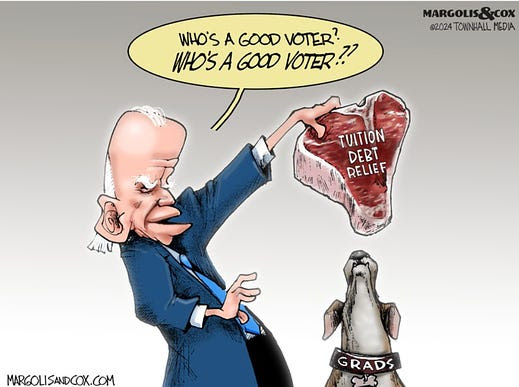 Thanks to Robert Malone for sending this.The Administration is essentially turning college into an open-ended, taxpayer-financed entitlement by canceling loans on the installment plan. It even boasts that it has already "approved $146 billion in student debt relief for 4 million Americans through more than two dozen executive actions." That's $36,500 per borrower. It's good to be the King.Mr. Biden's new loan forgiveness is still illegal. The High Court stressed that student loan forgiveness is a major question that requires clear authorization from Congress. But Mr. Biden seems to believe he can jam the courts by automatically forgiving debt before a judge has time to stop him.The White House says most borrowers won't even have to apply for loan relief. Sometime before the November election, Mr. Biden will simply declare their debt forgiven. That means a future Congress and a President Trump might be unable to undo the lawless act. Where are the press scolds who warn about a President who threatens democracy? (From the WSJ).-Israeli Society is 95% Pro Genocide & Always Has BeenLess than 2% of Israelis thought response is excessiveThese people are genocidal maniacs.-
Thanks to Robert Malone for sending this.The Administration is essentially turning college into an open-ended, taxpayer-financed entitlement by canceling loans on the installment plan. It even boasts that it has already "approved $146 billion in student debt relief for 4 million Americans through more than two dozen executive actions." That's $36,500 per borrower. It's good to be the King.Mr. Biden's new loan forgiveness is still illegal. The High Court stressed that student loan forgiveness is a major question that requires clear authorization from Congress. But Mr. Biden seems to believe he can jam the courts by automatically forgiving debt before a judge has time to stop him.The White House says most borrowers won't even have to apply for loan relief. Sometime before the November election, Mr. Biden will simply declare their debt forgiven. That means a future Congress and a President Trump might be unable to undo the lawless act. Where are the press scolds who warn about a President who threatens democracy? (From the WSJ).-Israeli Society is 95% Pro Genocide & Always Has BeenLess than 2% of Israelis thought response is excessiveThese people are genocidal maniacs.- Why isn't this being talked about more?The Great Food Reset has begunWe all lose from the global war on farmersThey are destroying the world's food supply right under our noses. We are going to be eating bugs in the next few years if something isn't done about this asap. Just recently I found out about the farmer protests in France and this needs to happen all around the world. These organisations like WHO and WEF have close ties with the Rockefeller's and are controlling YOUR governments with their sick twisted evil agenda. We need to wake up these sleeping morons or we are going to suffer really really badly this is shocking
Why isn't this being talked about more?The Great Food Reset has begunWe all lose from the global war on farmersThey are destroying the world's food supply right under our noses. We are going to be eating bugs in the next few years if something isn't done about this asap. Just recently I found out about the farmer protests in France and this needs to happen all around the world. These organisations like WHO and WEF have close ties with the Rockefeller's and are controlling YOUR governments with their sick twisted evil agenda. We need to wake up these sleeping morons or we are going to suffer really really badly this is shocking -
Site: Euthanasia Prevention Coalition
Alex Schadenberg
Executive Director, Euthanasia Prevention Coalition Normand Meunier
Normand Meunier
Rachel Watts reported for CBC News on April 12, 2024 that a quadriplegic man, Normand Meunier (66) "choose" to die by (MAiD) after developing a severe bedsore at a hospital in Saint-Jérôme, Québec. Meunier experienced a tragic spinal chord injury in 2022.Sylvie Brosseau told CBC news that:
Before being admitted to an intensive care bed for his third respiratory virus in three months this winter, Meunier was stuck on a stretcher in the emergency room for four days.
His partner, Sylvie Brosseau, says without having access to a special mattress, Meunier developed a major pressure sore on his buttocks that eventually worsened to the point where bone and muscle were exposed and visible — making his recovery and prognosis bleak.
"Ninety-five hours on a stretcher, unacceptable," Brosseau told Radio-Canada in an interview.
"Every time we go to the hospital, it's my duty to tell them that Normand is quadriplegic and needs an alternating pressure mattress … I don't understand how this can happen, because a mattress is the most basic thing."
Meunier's death by euthanasia is one of many stories of people who "choose" to die after receiving negligent medical care.
Jean-Pierre Beauchemin, a retired geriatrician and professor at Université Laval's faculty of medicine tod CBC news:
"When you're lying down, always in the same position, there's hyper-pressure between the bone and the skin,"
"A pressure sore can open in less than 24 hours, and then take a very long time to close."
The buttocks, heels, elbows and knees are particularly vulnerable.
A rotation schedule every two hours is generally necessary for a person confined to bed, according to a Quebec Health Ministry reference sheet.
Steven Laperrière, the director general of the Regroupement des activistes pour l'inclusion au Québec (RAPLIQ), which supports people with disabilities told CBC news:
"That whole story is a crying shame,"
"It's really a case of disbelief … What are we doing in order to help disabled persons or sick people to live in dignity prior to dying in dignity?"
He says the health-care institution was "negligent to say the least" and that getting a proper mattress is not like "trying to get a space shuttle into orbit."
"It's pretty basic … Nobody will convince me that within a few hours the proper mattress could not have been found," said Laperrière.
"To me, that's totally a lack of professionalism," said Laperrière, who says Meunier "would probably still be alive today" if staff had "been really professional about it."
 Trudo Lemmens
Trudo Lemmens
Trudo Lemmens, The Scholl Chair in Health Law and Policy at the University of Toronto said that this case is "an illustration of problems in our health-care system." Lemmens told CBC news:"Then the system responds by saying: 'well, you have access to medical assistance and dying,'"
"Medical assistance in dying is more easily available and on a more regular basis than some of the most basic care."
He says he is increasingly hearing stories of people who are struggling in the system and turn to MAID.
"It's deeply troubling,"
Watts reported that along with Brosseau, Moelle épinière et motricité Québec (MÉMO-Qc), an advocacy group for people with disabilities, is now demanding the Quebec government launch an independent inquest into Meunier's death. They believe the health authority's internal investigation is insufficient.
The disability group is seeking a meeting with Christian Dubé, Quebec's health minister, concerning the circumstances and lack of care that people with disabilities are experiencing in Québec.
By the way, euthanasia is all about "choice", "freedom" and "autonomy."
-
Site: AsiaNews.itThe auxiliary bishop of Jerusalem and patriarchal vicar for Palestine looks at the protests in Amman. Diplomatic relations with Israel allow aid to be sent to Gaza. Some students from Gaza's Holy Family Parish arrived in Amman thanks to the Patriarchate's support. Pope Francis 'is the only balanced voice.'
-
Site: LifeNews
Comedy Central’s The Daily Show brought out all the cringe on Thursday as temp host Michael Kosta labeled a recent Fox Business segment between Mark Simone and Larry Kudlow discussing abortion as “a ridiculous embarrassment.” That led him to do a sketch with Jordan Klepper where the two pretended to be stereotypical macho men who claimed to be pro-life, but also didn’t know how babies are made or what an abortion is.
Kosta wrapped up the straightforward monologue on the FBN segment by introducing the sketch, “Now, a panel of men talking about abortion might seem like a ridiculous embarrassment for everyone involved, but I actually think it’s a great idea for our new segment, ‘Men talk about abortion.’”
Kosta talks about abortion all the time, so he really means pro-life men discussing abortion. Still, complete with bad wigs and fake cigars, he asked, “Alright, let’s get right to it, man to man. What’s your solution for abortion?”
Referencing remarks Simone made in the clip, Klepper replied, “Okay, easy peasy, lemon squeezy. Alright, if a woman needs an abortion, she should just take the bus to a state where it’s legal.
After claiming that having had some testicular injury qualifies him to render such judgments, Kosta added that “I know it’s frustrating for women, but we can’t all—we have rights some places and other places we don’t. For example, I’m not allowed to go to the Epcot food court anymore because apparently you can’t ‘Do that’ to the funnel cakes. I mean, Double standards? Double standards?”
LifeNews is on GETTR. Please follow us for the latest pro-life news
Klepper also urged women to accept their stance, “Look, look, women are making too big a deal about all of this. Look, I’ve never had to walk through a line of protesters to get basic health care, but I have had to make eye contact with the woman at Walgreens while buying a pack of slim-fit Trojan condoms! So, sometimes you got to get past feeling judged, ladies!”
Kosta affirmed Klepper and wondered, “You are brave, my broham and by the way, what about the father’s rights?… Right! Are you a father?”
Klepper declared that he wasn’t because “I haven’t quite figured out how it works yet. I do know boobs are involved, though, you know. How about you?”
Not only did Kosta report not being a father, he claimed to not be able to find a date, “Yeah, I haven’t found the right lady. I was in a relationship for several years, but she turned out to be a raccoon and she tricked me out of my credit card!”
Starting to break character, Klepper relayed a similar expierence, “Tale as old as time period, player, tale as old as time. In fact, my ex was three possums in a trench coat! Just, you know—point is—point is when it comes to women’s rights, we get it!”
Wrapping it up, Kosta finally asked, “What is an abortion?”
Klepper again pleaded ignorance, “Not a clue. Not a clue. But, but, but, I think the boobs are once again involved.”
The inverse of “it’s funny because it’s true” is “it’s not funny because it’s not true,” and this bit about pro-life men being irredeemably dumb fails because pro-life men are keenly aware of what abortion is and how babies are made.
LifeNews Note: Alex Christy writes for Newsbusters, where this originally appeared.

The post Daily Show Claims Pro-Life Men Hate Women, You’re a “Ridiculous Embarrassment” appeared first on LifeNews.com.
-
Site: Home LivingHello Dear Ladies,Thank you for coming. I so appreciate it ---more than I can express!!Today I talked about a few things we need in hard times and they are FREE, and not freeze-dried. The list is provided here and you can create your own.But first, a little cottage from my Pinterest account . The Manse would look like this just by oval-sizing the porch, door and windows While it is nice and Lydiahttp://www.blogger.com/profile/15530969871397361970noreply@blogger.com4
-
Site: LifeNews
The Arkansas Legislature’s 2024 fiscal session is underway, and lawmakers are busy considering budget measures.
On Thursday Sen. John Payton (R – Wilburn) filed S.B. 64 providing $2 million in state funding for pregnancy help organizations that promote maternal health and provide women with options besides abortion. If passed, the measure would provide increased funding for organizations that help women and families.
In 2022 Family Council worked with the legislature and the governor to secure $1 million for pregnancy centers. This funding provided grants to more than 20 pregnancy help organizations. Last year we worked with lawmakers to renew this funding. This grant money has gone to good organizations across the state that give women and families real assistance when faced with an unplanned pregnancy.
S.B. 64 would make improvements to the grant program. It would increase state funding from $1 million per year to $2 million. This would put Arkansas’ funding on parr with other states’.
LifeNews is on GETTR. Please follow us for the latest pro-life news
The bill also clarifies that “pregnancy help organizations” include nonprofit organizations that promote infant and maternal wellness and reduce infant and maternal mortality by:
- Providing nutritional information and/or nutritional counseling;
- Providing prenatal vitamins;
- Providing a list of prenatal medical care options;
- Providing social, emotional, and/or material support; or
- Providing referrals for WIC and community-based nutritional services, including but not limited to food banks, food pantries, and food distribution centers.
The measure includes language preventing state funds from going to abortionists and their affiliates.
Now that abortion is prohibited in Arkansas except to save the life of the mother, we need to support women and families with unplanned pregnancies, and we need to promote infant and maternal wellness. This grant funding does that.
It provides women in Arkansas with actual, pro-life options and support — meaning they are less likely to travel out of state for abortion. And it helps fund pro-life organizations who are promoting infant and maternal wellness in Arkansas.
More than 50 pregnancy help organizations serve thousands of women in Arkansas. S.B. 64 would enable them to do even more in our state.
LifeNews Note: Jerry Cox is the president of the Arkansas Family Council.

The post Arkansas Bill Would Provide $2 Million for Pregnancy Centers to Help Moms and Babies appeared first on LifeNews.com.
-
Site: Euthanasia Prevention CoalitionAlex Schadenberg
Executive Director, Euthanasia Prevention Coalition Luc Van GorpThe Belga News Agency reported on April 8, 2024 that Luc Van Gorp, the President of Belgiums largest health insurance fund, Christian Mutualities (CM) is suggesting that Belgium cannot fund its healthcare needs and requires more deaths by euthanasia.
Luc Van GorpThe Belga News Agency reported on April 8, 2024 that Luc Van Gorp, the President of Belgiums largest health insurance fund, Christian Mutualities (CM) is suggesting that Belgium cannot fund its healthcare needs and requires more deaths by euthanasia.
Van Gorp commented on the increasing financial pressure related to Belgium's aging population and healthcare funding. He stated:
"No matter how much you end up investing, it will still not be enough"A Times of London article reported that Van Gorp's response is to promote euthanasia for those who are "tired of living":
Belgium’s euthanasia laws should cover elderly people who are “tired of life” or who feel they are a burden on the public purse, a health insurance chief has urged. Luc Van Gorp, 57, the president of the CM health fund, a Christian mutual insurance provider, said that the number of Belgians over 80 would double to 1.2 million by 2050.
“Many elderly people are tired of life. Why would you necessarily want to prolong such a life? Those people don’t want that themselves, and when it comes to budgets: it only costs the government money,” he told the Nieuwsblad newspaper. “We must remove the stigma.”Essentially Van Gorp is advocating for euthanasia for those who "tired of living."The Belga News reported:
That is why he is advocating "a radically different approach". He said we should not be asking "how long can I live", but "how long can I live a quality life" and advocates a gentler form of euthanasia for people who feel their lives are complete. Suicide, says Van Gorp, is too negative a term. "I would rather call it giving back life."Be careful for what you wish for. Belgium may need to undergo health care reform but Belgium's euthanasia is arguably the most permissive killing law in the world.
Van Gorp may think his ideology is "progressive" but in reality it is related to the eugenic ideology that created the German T-4 euthanasia program that killed approximately 300,000 people during the Second World War based on a concept that they were "useless eaters."Canada is also experiencing financial pressure in funding healthcare. But the concept that someone who is elderly should "choose" do die isn't actually about a "choice" but about an obligation to get out of the way and die. History is eerily beginning to repeat itself. -
Site: LifeNews
Abortion is back as a presidential campaign issue. While it never really went away, this week’s ruling of the Arizona Supreme Court, along with former President Donald Trump’s comments on his position on abortion, has propelled the mainstream media into daily — if not hourly — coverage of the abortion issue, and how it will affect the 2024 campaign. Trump said that his position on abortion is that its legality should be left up to the states, and that it shouldn’t be in the realm of the federal government. Democrats and even some Republicans have decried the Arizona decision to revert to its previous laws protecting life that were on the books before Roe v. Wade took effect.
For the media, abortion is the wedge issue supreme and will give them fodder for animated discussion all the way through November. For pro-abortion activists, and the Democratic Party alike, this is an opportunity to motivate their electoral base to action in light of an incumbent president who is drooping in the polls. For pro-lifers, this is an opportunity for real change in the wake of the Dobbs v. Jackson Women’s Health decision ending the decades of violence brought about by Roe v. Wade.
But an issue like this isn’t unique in American history.
Two U.S. Senate candidates debated a similar hot-button issue in 1858 Illinois. One was the incumbent Democrat, Stephen A. Douglas. His opponent was a Republican attorney named Abraham Lincoln. In what would become known as the “Lincoln-Douglas debates” (in which Lincoln gave his famous “House Divided” speech), a primary topic became the expansion of slavery into the U.S. territories. Douglas argued for the application of a doctrine called “Popular Sovereignty,” in which the territories would be allowed to choose for themselves whether or not to allow slavery. Lincoln claimed that such a doctrine could cause slavery to spread into the free (non-slave) states and perpetuate a policy which the U.S. had already limited in the Missouri Compromise.
Lincoln lost that election, but as we all know, went on to become the first Republican president. While in that office, Lincoln’s views on the slavery issue evolved even further. Lincoln took federal action on slavery in the Emancipation Proclamation and supported the 13th Amendment to the U.S. Constitution — a federal ban on slavery — which was ratified shortly after his assassination. Lincoln came to see slavery as an issue which should see repudiation from all spheres — not just an individual state’s decision.
REACH PRO-LIFE PEOPLE WORLDWIDE! Advertise with LifeNews to reach hundreds of thousands of pro-life readers every week. Contact us today.
We would be hard-pressed to find any Democrat or Republican in the Unites States today who would say that individual states should be the final decision in deciding whether or not slavery should be legal. There will always be exceptions, but both parties know that it would be political suicide to take such a position. It’s because the issue itself supersedes the mere category of state or federal legislation. It’s a moral issue, and it’s inviolate. To relegate slavery to the level of mere local laws would undermine the very fabric of our nation. Our predecessors saw that slavery was doing just that in 1865 and wisely corrected it with the 13th Amendment. The addition of a constitutional amendment at the national level rightly underscored what was correctly enacted in many states at the state level. Americans don’t vote anymore on slavery, but it was necessary to take government action to reach that goal.
When it comes to the issue of abortion, Republicans have — at least until recently — taken a more transcendent view on the value of the unborn life. Their latest platform states:
“The Constitution’s guarantee that no one can ‘be deprived of life, liberty or property’ deliberately echoes the Declaration of Independence’s proclamation that ‘all’ are ‘endowed by their Creator’ with the inalienable right to life. Accordingly, we assert the sanctity of human life and affirm that the unborn child has a fundamental right to life which cannot be infringed. We support a human life amendment to the Constitution and legislation to make clear that the Fourteenth Amendment’s protections apply to children before birth.”
It remains to be seen how far Republicans have or will veer from this 2016 statement of party principle. During his administration, Trump advanced pro-life policies at a rate unseen in many previous administrations. Judging from Trump’s actions and from the Republican platform, abortion isn’t just an issue for the states.
For the Democrats, it’s clear that they do not view the protection of unborn life as a moral imperative. Their latest platform contains the phrase, “We believe unequivocally, like the majority of Americans, that every woman should be able to access high-quality reproductive health care services, including safe and legal abortion.” It’s safe to say that we won’t find Democratic spokespersons arguing for states’ rights on the issue of abortion — in fact, President Biden has stated a goal to codify Roe v. Wade into federal law. He posted on X this week, “Donald Trump is the reason Roe v. Wade has ended. If you reelect me and @KamalaHarris, we’ll be the reason it’s restored.” For the Democrats, abortion isn’t just an issue for the states.
The issue of slavery has shown us that, in the eyes of both political parties, some issues are bigger than a mere commitment to federalism. And with abortion, it’s clear that political expediency, rather than a staunch commitment to federalism, may be the operative factor for those making this appeal. Human lives aren’t fearfully and wonderfully legislated at the state level, they are fearfully and wonderfully made. We should treat them as such at all levels of government.
LifeNews Note: Jared Bridges is editor-in-chief of The Washington Stand.

The post Abortion is Not Just a State Issue, It Can’t be Wrong to Kill Babies in One State But Okay in Another appeared first on LifeNews.com.
-
Site: AsiaNews.itThe Holy See has officially announced the long journey to Indonesia, Papua New Guinea, Timor-Leste, and Singapore. Card Goh of Singapore hopes the pope will bring to his predominantly Chinese city, 'renewed fervour to all Catholics [. . .], especially in these most challenging of times'. It will also be the first time a pontiff visits Dili since independence. For Card Carmo da Silva, the Holy Father comes to 'strengthen Timor-Leste's Church in the faith and love of Christ.'
-
Site: LES FEMMES - THE TRUTH
-
Site: Zero HedgeThe Final Nail In The Coffin Of Synchronized Central Bank ActionsTyler Durden Fri, 04/12/2024 - 11:20
By Elwin de Groot, head of macro strategy at Rabobank
And now the end [to monetary tightening] is near … And so I face that final curtain …
My friend I'll say it clear … I'll state my case, of which I'm certain [– Christine Lagarde]
As we head into the weekend and gold prices just reached their highest level ever and the euro has slipped below 1.07 for the first time since November last year (perhaps also as some market participants worry about an imminent attack on Israel by Iran or its proxies), we may conclude that this week has proved to be the final nail in the coffin of synchronized central bank policy actions.
Not so long ago ‘June’ appeared to be the month for the two major global central banks. But in the last few weeks the Fed got it’s ‘itchy fingers’ slapped by stronger-than-expected labor market and sticky (services) CPI data. It is now fairly clear that ‘June’ is no longer the month of truth for the Fed, as our own Philip Marey explained earlier this week in his post Fed-minutes comment – we have moved the goalpost for the Fed to September. The Fed’s Collins said yesterday at an event in New York that recent data had eased concerns about “an imminent need” to adjust interest rates. Well, that’s one way to say it! WSJ’s Nick Timiraos put it more starkly, noting that that “Fed Rate Cuts Are Now a Matter of If, Not When”, which kind of captures the sentiment.
But over to Europe then, where the ECB yesterday gave some strong hints that a June cut is forthcoming. Although persistent price pressures in services remain somewhat of a concern, this doesn’t appear to be in the way of a first cut at the next policy meeting. As we explain here, the Council seems to have made up its mind now that i) the data (in the form of a weak economy and disinflationary forces) have continued to move in the right direction and that ii) a few cuts (let’s start with one) would still keep policy sufficiently restrictive so as to not derail the disinflation process. Despite its mantra of ‘data dependence’ and inflation not having reached its target yet, the Council seems pretty convinced that a cut would be appropriate. “We will not wait for everything to be 2% before we cut”, captures the idea that ECB is now more concerned of falling behind the curve at some point than making an policy error by easing too quickly and sustaining the stickiness services inflation and/or tightness in the labor market. But by emphasizing its data dependence and that it is not pre-committing to any kind of easing trajectory, it probably believes that it can keep the risk of that second scenario materializing at an acceptable level.
But what of course stands out from this development is that the ECB has increasing confidence that it can go its own (European) way. Some observers, including ourselves, note it is a great opportunity for the ECB to demonstrate its ‘independence’, by taking the lead instead of being influenced by what is happening in the US. This shouldn’t be an issue if there is a more fundamental gap opening up between the Eurozone and the US that -indeed- warrants an independent and divergent policy stance. The biggest risk is actually when this perceived gap is not ‘structural’ but sufficiently persistent to push both central banks in different directions when actually that is not really warranted.
A weakening of the Euro on the back of this divergence could of course warrant a slower easing cycle on the part of the ECB at some point. But, to be fair, any model will tell you that you need a pretty significant drop in the euro before this has a material impact on inflation. As a rule of thumb, a 1% drop in EUR/USD – associated with a 0.5% drop in the effective exchange rate – would raise domestic inflation by 0.05% in the first year and 0.15% after three years. Conversely, one could even argue that higher US rates could spill over to Europe dampening the effectiveness of ECB easing and thus warranting even a slightly faster cutting cycle.
But the biggest risk, arguably, is that the ECB simply has it wrong on fundamental grounds. That (global) inflationary forces are more persistent (or will return with a vengeance) and that the recent US inflation data are a harbinger of global trends rather than some statistical aberration. On that note, it is interesting to point out that Ms. Lagarde yesterday clearly did not want to be drawn too much into a comparative analysis between Europe and the US, although she noted that the ‘nature’ of US inflation was different from the perspective of fiscal stimulus and investment (more of both in the US). While that may be true, we would also argue that most of the disinflation so far has come from (global) ‘supply-driven’ factors: lower energy prices, lower tradable goods inflation and (more recently) lower food prices. Not services inflation! And there is obviously a parallel with the US data, albeit, perhaps, on a different level and persistence. So although the ECB is increasingly confident that it can diverge from the Fed – since its domestic data and trends take precedence over global developments – it is actually on the domestic inflation front where that divergence is the least convincing!
Turning briefly to another ‘front’, namely the geopolitical, we also observe a hardening stance from all the parties involved, but in Europe this comes with, well, European characteristics. This week we saw both the release of a 700+ European Commission report on ‘state-induced distortions in China’s economy’, a report that will likely open the door to far more EU trade actions against China, and subsidies to counteract it. This immediately drew a stinging rebuke from China, which “strongly opposes the European Commission’s subjective, one-sided and erroneous assessment of China’s socialist market economy to create an excuse for its discriminatory anti-dumping practices”, the Ministry of Commerce said, according to Xinhua news. A German Kiel Institute report released recently notes that “[…] even according to a very conservative estimate, counting only the more easily quantifiable subsidy instruments, industrial subsidies add up to about Euro 221 bn or 1.73% of Chinese GDP in 2019.” This contrasts with some 0.4-0.7% in most other economies with which it compares China.
That said, we should also mention the recent visit by German Chancellor Scholz to China and now also Italian PM Meloni planning to visit Beijing to strengthen economic/trade ties after ditching Italy’s support for China’s Belt and Road initiative.
Meanwhile, the Commission also published a discussion paper on the economic impact of defense spending, arguably, to stimulate and support the discussion of how to do this in the most effective way. It notes that “[…] the literature on the existence of a causal relationship between defence spending and economic growth is not unanimous. Although favourable impacts are more frequently reported in advanced economies than in less developed ones, the outcomes are dependent on the time horizon and on the methodology used.”
More signs of the hardening stance came via German defense minister Boris Pistorius, who warned yesterday that Europe should prepare for a Russian attack as he compared Russia invasion of Ukraine to Hitler’s annexation of Czechoslovak territory in 1938. Last week Pistorius called for easing Germany’s debt rules.
It’s hard to summarize all this into a single sentence. Is it strategic ambiguity? Perhaps, but it is definitely the European Way…
-
Site: Mises InstituteSimon Guenzl joins Bob to push back on Dave Smith's recent appearance, where Dave had made the case against open borders.
-
Site: Zero Hedge16 GOP Attorneys General Challenge Garland's Comments On Voting LawsTyler Durden Fri, 04/12/2024 - 10:20
Authored by Matt McGregor via The Epoch Times (emphasis ours),
A group of Republican state attorneys general are pushing back against U.S. Attorney General Merrick Garland’s comments made in March at a church in Selma, Alabama, where he discussed using the Department of Justice (DOJ) to interfere in state voting laws.
 Attorney General Merrick Garland testifies before the House Judiciary Committee in Congress in Washington on Sept. 20, 2023. (Madalina Vasiliu/The Epoch Times)
Attorney General Merrick Garland testifies before the House Judiciary Committee in Congress in Washington on Sept. 20, 2023. (Madalina Vasiliu/The Epoch Times)
Indiana Attorney General Todd Rokita, in a letter supported by 15 other GOP prosecutors, including Ken Paxton in Texas and Liz Murrill in Louisiana, stated that Mr. Garland’s comments are “concerning.”
“In your speech, you claimed that democracy is under attack by ‘discriminatory, burdensome, and unnecessary restrictions on access to the ballot,’” Mr. Rokita wrote. “In response to these allegations, you announced that you ‘double[d] the number of lawyers in the civil rights division’ and ‘launched the Justice Department’s Election Threats Task Force,’ signaling your intent to intrude on our states’ authority.”
Mr. Rokita called this a “weaponization of the DOJ” fueled by Mr. Garland’s personal views, which he called a “serious threat to the principles of federalism and separation of powers, but also to democracy and the rule of law.”
In the letter, Mr. Rokita said the U.S. Constitution is clear in its direction to leave state elections up to the elected representatives of those states.
“Any subversion of these clear mandates would be undermining our Constitution and law and order,” he wrote. “And we think your remarks undermine these principles in a few ways.”
Mr. Garland told the audience at the Tabernacle Baptist Church that his DOJ is challenging state laws that he said are placing unneeded restrictions on black voters. He said black voters are disenfranchised by these restrictions on mail-in voting, the use of drop boxes, and voter ID.
“That is why we are working to block the adoption of discriminatory redistricting plans that dilute the vote of Black voters and other voters of color,” Mr. Garland said. “We are holding accountable jurisdictions that fail to provide accessible vote centers for voters with disabilities. We are defending the ability of private individuals—not just the government—to bring lawsuits under the key provisions of the Voting Rights Act and the Civil Rights Act of 1964.”
Voter Fraud: ‘Very Real’
Mr. Rokita addressed Mr. Garland’s statement on voter ID laws, stating that contrary to Mr. Garland’s claiming they are discriminatory, they prohibit voter fraud, which he called “very real,” and referenced several occurrences.
“With these repeated instances of voter fraud, the DOJ should be championing these laws and encouraging enforcement of them,” Mr. Rokita said. “Individuals are required to use an ID to prove identity when driving a car, boarding an airline, buying cigarettes, or purchasing alcohol, and none of these identification requirements are considered ‘discriminatory’ or ‘burdensome.’ Requiring an ID to vote in an election is no different.”
He then called out Mr. Garland’s claim that states imposed “unnecessary restrictions” on mail-in voting and drop boxes.
“Numerous security risks exist with mail-in voting and drop boxes, and these methods of voting have led to the proliferation of election fraud,” he said, citing multiple instances.
He then referenced Mr. Garland’s comment in which he said the Voting Rights Act (VRA) has been weakened by legislation.
“This statement is factually incorrect,” he said. “When the VRA was enacted in 1965, a limited number of jurisdictions required federal oversight over its state election laws to combat discrimination. The original intent of the VRA was to ensure that the rights of Americans were not infringed upon at the ballot box based on their race.”
The law justifiably singled out states that were restricting the right to vote but had always meant to be “temporary legislation.”
“The Voting Rights Act is not under attack,” Mr. Rokita said. “Election security measures passed by state governments do not ‘make voting more difficult,’ nor are they dismantling the right to vote. Instead, common sense election laws strengthen our electoral process to ensure free and fair elections are conducted among the states; especially since voter fraud does exist.”
However, the right to vote is under attack by progressive elected officials, he said, who are allowing illegal aliens to vote in elections.
“In some cases, courts found these laws unconstitutional, and rightly so,” he said.
State attorney generals must defend their laws, he said, most importantly during a time when the Biden administration’s border policy has made them vulnerable to intrusions and violations of sovereignty.
“Finally, as you mention, the Department of Justice is ‘fighting back’ against these commonsense election security measures passed by the states in numerous ways,” he said.
The expansion of federal attorneys in the DOJ’s Voting Section of the Civil Rights Division and the election task force suggests a federal interference that goes against what a constitutional republic is supposed to be about, he wrote.
“The DOJ’s expansion serves as a direct attack on the states’ role in regulating elections,” he said. “Instead of working with the states to secure elections, you suggest weaponizing the DOJ through the civil rights division to undermine anything that you subjectively believe is a ‘threat [to] democracy.’”
Mr. Rokita said Mr. Garland is only concerned with using the DOJ to build up the vote of the Democratic party.
“And by using the justice system in this way, you diminish any democratic principles you claim to defend,” he said.
The Epoch Times contacted the DOJ for comment.
-
Site: Zero HedgeUMich Inflation Expectations Jump Higher At Start Of April, Sentiment Sinks But Democrats HappyTyler Durden Fri, 04/12/2024 - 10:08
CPI is resurgent, PPI's trend is no longer lower, and this morning we saw import and export prices rising (or not falling) at their fastest pace in a year...
Source: Bloomberg
We say all that because this morning, we are told by UMich that in preliminary April data, Americans' expectations for inflation jumped higher...
Source: Bloomberg
“These increases in inflation expectations are modest enough that consumers do not appear worried that high inflation will come roaring back,’’ Joanne Hsu, director of the survey, said in a statement.
However, “while consumers are fully aware that inflation has come down substantially since 2022, they are not satisfied by the current pace of disinflation.”
The headline UMich sentiment index declined, led by a drop in 'current conditions'...
Source: Bloomberg
"Expectations over personal finances, business conditions, and labor markets have all been stable over the last four months," according to UMich.
"However, a slight uptick in inflation expectations in April reflects some frustration that the inflation slowdown may have stalled."
Democrats appear the most confident, with their sentiment pushing to its highest since June 2021. This as both Republicans and Independents saw confidence decline...
Source: Bloomberg
Finally, it appears all those illegal immigrants that are stuffing the payrolls prints are not buying large household durables...
Source: Bloomberg
Overall, UMich notes, that consumers are reserving judgment about the economy in light of the upcoming election, which, in the view of many consumers, could have a substantial impact on the trajectory of the economy.
-
Site: Mises InstituteWhile politicians and bureaucrats always claim to work in the "public interest," the rewards they gain for making bad economic decisions are more important to them than any satisfaction they get from supposedly "serving the people."
-
Site: Steyn OnlineCanada - the first hermaphrodite member of the G7...
-
Site: AsiaNews.itIn a statement, the National United Christian Forum calls on Christians to vote in the upcoming general election (19 April-1 June). Expressing a preference is not only "a symbol" but also a "powerful tool for growth and good governance" to build a 'society that is inclusive and which uplifts all the members.'
-
Site: Zero HedgeHow Taxpayers Will Heavily Subsidize Democrat Boots On The Ground This ElectionTyler Durden Fri, 04/12/2024 - 09:50
Authored by Ben Weingarten via RealClear Wire,
Progressives are using legal loopholes and the power of the federal government to maximize Democrat votes in the 2024 election at taxpayers’ expense, RealClearInvestigations has found.
The methods include voter registration and mobilization campaigns by ostensibly nonpartisan charities that target Democrats using demographic data as proxies, and the Biden administration’s unprecedented demand that every federal agency “consider ways to expand citizens’ opportunities to register to vote and to obtain information about, and participate in, the electoral process.”
A dizzying array of overwhelmingly “democracy-focused” entities with ties to the Democratic Party operating as charities and funded with hundreds of millions of dollars from major liberal “dark money” vehicles are engaged in a sprawling campaign to register the voters, deliver them the ballots, and figuratively and sometimes literally harvest the votes necessary to defeat Donald Trump.
These efforts, now buttressed by the federal government, amplify and extend what Time magazine described as a “well-funded cabal of powerful people ranging across industries and ideologies,” who had worked behind the scenes in 2020 “to influence perceptions, change rules and laws, steer media coverage and control the flow of information” to defeat Trump and other Republicans. The “shadow campaigners,” Time declared, “were not rigging the election; they were fortifying it.”
Heading into 2024, “there is not a ‘shadow’ campaign,” said Mike Howell, executive director of the Heritage Foundation’s Oversight Project. “There is an overt assault on President Trump and those who wish to vote for him occurring at every level of government and with the support of all major institutions.”
By contrast, Republican Party stalwarts lament that no comparable effort exists on their side. The GOP’s turnout and messaging efforts seek to thread a difficult needle by encouraging early and absentee voting and ballot-harvesting – pandemic-era measures that Trump and supporters blame for his 2020 electoral defeat – while the party simultaneously fights the mainly blue-state laws that made the practices possible. The party’s position is further complicated by its standard-bearer’s warnings of a rigged election bigger than in 2020, which some speculate could turn off moderate swing voters.
Electioneering 'Super-Weapons'
The IRS permits tax-exempt nonprofit groups to engage in voter registration and get-out-the-vote drives so long as they do not “refer to any candidate or political party” nor conduct their activities “in a biased manner that favors (or opposes) one or more candidates prohibited.”
These entities have become magnets for funds not only from wealthy donors, who can contribute without traditional campaign finance limits – and get a tax break to boot – but also abundantly endowed private foundations that are prohibited from engaging in partisan activities.
In recent years, dozens of progressive-oriented 501(c)(3)s, now pulling in upwards of $500 million annually, have engaged in purportedly neutral efforts to impact elections, according to Hayden Ludwig, director of Policy Research at the election integrity-focused advocacy group, Restoration of America.
In practice, critics like Ludwig argue, left-leaning charities flout the law by registering and mobilizing demographics that tend to vote disproportionately Democratic behind a veil of non-partisan democracy promotion.
During the 2020 election, for example, the Voter Participation Center solicited millions of ballot applications in swing states – many of them prefilled for respondents. This nonprofit, like its peers, is clear that it isn’t targeting just any voters, but what it and progressive activists have dubbed a “New American Majority” of “young people, people of color and unmarried women.”
Tom Lopach, a longtime Democratic Party operative and the center’s president and CEO, told RCI in a statement: “We do the work that state election officials typically do not do – seeking out underrepresented voting-eligible Americans Tom Lopach … This is difficult but necessary work that brings democracy to eligible Americans’ doorsteps.”
In 2020, Facebook founder Mark Zuckerberg and his wife Priscilla Chan showed how supposedly neutral efforts can have a partisan impact when they funneled some $400 million through two progressive-led but purportedly nonpartisan nonprofits into election offices across the country.
That money disproportionately went to jurisdictions that Joe Biden won in the pivotal battleground states that delivered his victory, often flowing to left-leaning nonprofits to whom election offices outsourced the administration of sometimes critical functions.
In April 2022, a primary conduit of these so-called “Zuckerbucks,” the Center for Tech and Civic Life, announced the launch of a successor to the 2020 effort – the U.S. Alliance for Election Excellence, a five-year $80 million program “to envision, support, and celebrate excellence in U.S. election administration.”
“The left has assembled an impressive ‘election-industrial’ complex of non-profit organizations that is constantly working towards goals like ‘promoting participation’ targeting ‘underrepresented minorities,’” said Jason Snead, executive director of the conservative Honest Elections Project. Such terms, Snead says, “are code for identifying and mobilizing liberal voters.”
Election experts view such activities as potentially decisive.
“‘Nonpartisan’ and ‘charitable’ voter registration and get-out-the-vote groups” are the Democratic Party’s “electioneering super-weapon[s],” said Parker Thayer, an analyst with the conservative-oriented Capital Research Center in Washington, D.C.
'Everybody Votes' – But for Whom?
Of these, Thayer sees the Everybody Votes Campaign as of paramount importance.
Born of a plan “commissioned by [Hillary] Clinton campaign chairman John Podesta, funded by the Democratic Party’s biggest donors, and coordinated with cut-throat Democratic consultants,” Thayer writes in an extensive analysis of the group’s efforts, “the Everybody Votes campaign [has] used the guise of civic-minded charity to selectively register millions of ‘non-white’ swing-state voters in the hopes of getting out the Democratic vote.”
It does so by funding and training over 50 community groups to register voters to close “the voter registration gap in communities of color,” which it attributes to “modern forms of Jim Crow laws,” such as voter ID requirements, the group’s executive director, Nellie Sires, said in a January 2024 interview.
From 2016-2021, the Everybody Votes Campaign, doing business as three entities, collected over $190 million from major Democratic Party donors, unions, and environmental activists. Some of the largest donors include the League of Conservation Voters Education Fund; the New Venture and Hopewell Funds, managed by for-profit consulting firm Arabella Advisors; and the George Soros-funded Foundation to Promote Open Society – all 501(c)(3) public charities or private foundations forbidden from supporting “voter education or registration activities with evidence of bias.”
The Everybody Votes Campaign distributed the funds to a slew of left-leaning state-based voter registration organizations largely in eight pivotal states from 2016 to 2019 – Arizona, Colorado, Florida, Georgia, Ohio, North Carolina, Virginia, and Nevada – and then to Pennsylvania, Michigan, and Wisconsin in 2021.
According to Thayer’s analysis, the Everybody Votes Campaign’s voter registration push “would have provided Democrats more votes than the total margins of victory in Arizona, Georgia, Nevada, and Pennsylvania,” securing Joe Biden’s victory in the 2020 election.
'4 to 10 Times More Cost-Effective'
One notable backer of the Everybody Votes Campaign is Mind the Gap, a “Moneyball-style” Silicon Valley Democratic Super PAC founded by Stanford law professor Barbara Fried, and connected to the political activities of her convicted crypto-fraudster son, Sam Bankman-Fried.
The analytics-focused outfit prepared a confidential strategy memo leaked in advance of the 2020 election, noting that “501(c)(3) voter registration focused on underrepresented groups in the electorate” would be the “single most effective tactic for ensuring Democratic victories” – “4 to 10 times more cost-effective” on after-tax basis at “garnering additional Democratic votes” relative to alternatives like “broadcast media and digital buys.”
Mind the Gap recommended that donors contribute to three organizations: the Voter Participation Center and its sister organization, the Center for Voter Information for mail-based registration efforts, and Everybody Votes for site-based registration efforts.
The largest grant recipient, receiving $24 million during the 2016-21 period, was State Voices, which describes itself as a “nonpartisan network of 25 state-based coalitions … that collectively partner with over 1,200 organizations” consisting of “advocates, organizers, and activists … work[ing] together to fight for a healthy democracy and political power for Black, Indigenous, Latinx, Asian American and Pacific Islander (AAPI), and all people of color (BIPOC).”
Another top recipient, raking in over $10 million, was the Voter Participation Center.
According to the Capital Research Center, the Everybody Votes Campaign would collect and spend over $50 million in connection with the 2022 midterm elections – the most recent period for which financials are available. All told, since its founding in 2015, the Campaign says, its network has registered 5.1 million voters, of whom 76% are people of color; 56% are women; and 47% are under the age of 35.
Last November, the news outlet Puck reported on a secret memo circulated by Mind the Gap regarding its plans for 2024. “Our strategy early in the 2024 presidential race will be to massively scale high-performing voter registration and mobilization programs,” the memo read. The PAC again specifically directed donors to the Everybody Votes Campaign, which did not respond to requests for comment.
Lopach, who has worked in Democratic Party politics his entire career, bristled at RCI’s questions regarding critics’ claims of a partisan bent to its work. “The presumptions baked into the questions … emailed to us are inaccurate and reveal the reporter’s own biases,” he responded, while emphasizing the organization’s targeting of “underrepresented voting-eligible Americans.”
Thayer has dubbed Everybody Votes the “largest and most corrupt ‘charitable’ voter registration drive in American history.”
Of such organizations’ claims of nonpartisanship, Howell told RCI: “If they were truly interested in an informed participatory constitutional Republic, they would have an even-handed approach to registering voters.”
“Call me when they show up to a NASCAR race, Daughters of the American Revolution event, or a gun show,” Howell added. “Then we can pretend for a minute that these are beyond just facial efforts to appear somewhat neutral.”
Challenges for GOP
But NASCAR races have not been hubs for GOP-led voter registration efforts either. Restoration of America’s Ludwig estimates that the right may spend as little as 1% of what the left spends on voter registration efforts.
A recent memo from the Sentinel Action Fund, a super PAC that aims to elect conservatives, noted that in the 2022 election cycle, while $8.9 billion was spent on federal elections, there were zero large independent expenditure organizations on the right focused on get-out-the-vote efforts or “ballot chasing.”
Republican Party vehicles and conservative outfits like grassroots-oriented Turning Point Action, a 501(c)(4), are engaged in such efforts in the 2024 cycle, but the scale and sophistication of their political counterparts’ efforts would appear unrivaled at this point.
Election experts attribute this gap to several factors beyond the GOP’s focus on other tactics to win elections, or ineffectiveness. They note that Democratic voters tend to be more concentrated in urban areas and college campuses, making it easier to run efficient registration drives. As regards early and absentee voting and ballot harvesting, it is not clear if these efforts will substantially grow the pool of Republican voters versus merely enabling the party to “bank” votes earlier.
With respect to the use of 501(c)(3)s to conduct such activities, Ludwig said some conservatives may still be fearful of running afoul of the IRS – through exploiting tax laws to pursue efforts perceived to be partisan effectively on the taxpayers’ dime – in the wake of its targeting of Tea Party groups for extreme scrutiny during the Obama years.
‘Bidenbucks’: ‘Zuckerbucks’ on Steroids
Since the 2020 election, Democrats have opened a second apparent electioneering front that Republicans could not match even if they wanted to: The rise of so-called “Bidenbucks,” which uses the “unlimited funding, resources, and reach” of the federal government and agency offices located nationwide,” to turn out favored voters, according to Stewart Whitson, legal director of the conservative Foundation for Government Accountability.
In March 2021, President Biden introduced Executive Order 14019. The directive on “promoting access to voting” orders every federal agency, more than 600 in all, to register and mobilize voters – particularly “people of color” and others the White House says face “challenges to exercise their fundamental right to vote.” It further directs the agencies to collaborate with ostensibly nonpartisan nonprofits in pursuit of its goals.
As RCI has previously reported, EO 14019 appears to have been designed by left-leaning think tank Demos and implemented in consultation and sometimes coordination with a slew of progressive, labor, and identity-focused groups with the goal of generating up to 3.5 million new or updated voter registrations annually.
The ACLU and Demos have reportedly helped execute the order. RCI additionally found that at least two recipients of grants under the Everybody Votes Campaign, the NAACP and UnidosUS – formerly the National Council of Raza – were also listed on an email as participants in a July 2021 listening session on the executive order convened by the White House and agency officials.
Whitson, whose organization unearthed that email in its fight to expose details about the order, emphasized that “[U]nlike 2020 wherein the shadow campaign was conducted by private citizens seeking to influence government election operations from the outside, the threat we face in 2024 is being launched from within the government itself.”
Facing both congressional scrutiny and litigation, the administration has closely guarded the strategic plans agencies were to develop to carry out the order, how they are implementing them, to what end, and with whom.
Perfunctory press releases, reports from groups supportive of the order, and documents slowly ferreted out via FOIA requests and litigation, however, demonstrate that relevant agencies have sought to drive voter registration via public housing authorities, child nutrition programs, and voluntary tax preparation clinics.
In August 2023, U.S. Citizenship and Immigration Services issued updated guidance calling for the agency to register voters at naturalization ceremonies.
More recently, the Department of Education did the same, blessing the use of federal work-study funds to pay students for “supporting broad-based get-out-the-vote activities, voter registration,” and other activities. Scott Walter, president of the Capital Research Center, recently told the Epoch Times that the Department had previously threatened schools “that you better be registering students or you could lose your federal funds.”
When asked by RCI to respond to Walter’s claim, the Department of Education would not. Over two dozen Pennsylvania state legislators challenged the order via a lawsuit in January. Citing alleged unlawful attempts by several agencies to register Keystone state voters, the lawmakers asserted:
"By engaging in a targeted voter registration effort of this magnitude, focused specifically on these agencies and the groups of potential voters they interact with, leveraging the resources and reach of the federal government, this effort appears to be a taxpayer-funded get-out-the-vote effort designed to benefit the current President’s political party."
Echoing this view, Whitson’s Foundation for Government Accountability submitted an amicus brief noting that “all of the federal agencies FGA has identified as taking active steps to carry out EO 14019 have one thing in common: They provide government welfare benefits and other services to groups of voters the vast majority of which have historically voted Democrat.”
The plaintiffs alleged the executive order violated both Pennsylvania law limiting voter registration efforts to non-federal actors, and constitutional provisions reserving election laws to the states. On March 26, a district court dismissed the case, claiming the plaintiffs lacked standing. Whitson told RCI that others would likely lodge similar lawsuits, building on the Pennsylvania legislators’ case in the wake of the dismissal. Days later, The Federalist reported that the plaintiffs intended to appeal their case to the U.S. Supreme Court. A White House spokesperson did not reply to RCI’s inquiries regarding the executive order.
Opposition and Circumvention
Republicans have had more success opposing the use of Zuckerbucks and other private monies used to finance public elections. More than two dozen states would move to ban or restrict such grants in response to the activities observed during the 2020 election.
Most recently, Wisconsin, where some of the most controversial Zuckerbucks-related efforts took place, was added to that list when, on April 2, voters approved a constitutional amendment barring the private funding of elections.
Despite this crackdown and the feds seemingly stepping into the breach, efforts to privately finance election administration persist. The U.S. Alliance for Election Excellence bills itself as an initiative to bolster “woefully unsupported” election offices to “revitalize American democracy.”
The organization says it services jurisdictions – 11 listed on its website, ranging across states from Arizona to California and Wisconsin – with “training, mentorship, and resources.” Alliance officials did not respond to RCI’s inquiry about whether it would be terminating the relationship with the city of Madison, Wisconsin., in light of the passage of the recent ballot measure that would seem to have barred it. Nor did it respond to RCI’s other inquiries in connection with this article.
Most of these partnerships were initiated with jurisdictions in states that have not banned Zuckerbucks, though it has sought to circumvent such prohibitions in Georgia and Utah. The stated goal of the Alliance for Election Excellence is to support voters via measures like assisting participating centers in “redesigning” forms to make them more intuitive and purchasing infrastructure “to improve election security and accessibility.”
Alliance launch partners include entities such as:
- The Center for Civic Design, which works with election offices “using research, design, accessibility, and plain language to remove barriers in the voter journey and invite participation in democracy;”
- The Elections Group, to “implement new programs or improve processes for voters and stakeholders”; and
- The Center for Secure and Modern Elections to “modernize the voting system, making elections more efficient and secure.”
Critics argue this seemingly more modest effort is, in reality, an ambitious Zuckerbucks rebrand.
Snead’s Honest Elections Project published a report in April 2023, based in part on documents received from FOIA requests, indicating “that the Alliance is a reinvention of CTCL’s scheme to use private funding to strongarm election policy nationwide.”
Among other takeaways, it found that:
- The Alliance offers services that touch every aspect of election administration, ranging from “legal” and “political” consultation to public relations, guidance, and assistance with recruitment and training.
- The Alliance is gathering detailed information on the inner workings of participating election offices and developing “improvement plans” to reshape the way they operate.
The report shows that many of the alliance’s launch partners, starting with the Center for Tech and Civic Life and the Center for Civic Design, are funded by major Democrat-tied, so-called “dark money” groups such as the Democracy Fund and Arabella Advisors’ New Venture Fund and Hopewell Fund.
The Democracy Fund is led by Democrat tech billionaire Pierre Omidyar, which has granted some $275 million to like-minded organizations from publications like Mother Jones and ProPublica to the Voter Registration Project since its founding.
The District of Columbia recently closed a criminal investigation into Arabella, whose fund network reportedly spent nearly $1.2 billion in 2020 alone, after probing it over allegations its funds were pursuing political ends in violation of their tax-exempt statuses. The Center for Secure and Modern Elections, the Honest Elections Project says, pushes “left-wing priorities like automatic voter registration” and is run by the New Venture Fund. The Elections Group’s CEO and co-founder, Jennifer Morrell, previously served as a consultant at the Democracy Fund.
The Capital Research Center’s Walter uses a football analogy to explain why he sees these efforts as untoward. He told RCI:
"Election offices are the refs in elections; the parties are teams trying to score. You’d be puzzled if you heard Super Bowl refs say they’re trying to boost points scored. You’d be outraged if you learned those refs had received money and training from people who previously worked for one team’s offensive coaching staff. That’s what left-wing political operatives, using left-wing money, are doing, and it’s clearly unfair."
Non-Trump Lawfare
Democrat-aligned groups continue to engage in litigation, like that brought by chief election lawyer Marc Elias, aimed at loosening election laws to their benefit. Snead told RCI, “There are more than 70 active lawsuits right now targeting voter ID laws, anti-ballot harvesting laws, signature verification, drop box regulations, and more.”
After securing victory in a lawsuit requiring signature verification for mail voting in Pennsylvania, the RNC touted its engagement as well in 81 election integrity cases this cycle. Swing-state Wisconsin is another major battleground for such efforts.
There, Elias’ legal team has challenged witness signature requirements and bans on election clerks filling address information on mail-in ballots. It and others are also working to overturn a state Supreme Court decision finding drop boxes illegal. The Badger State’s now liberal-majority Supreme Court announced in March it would take up the case.
Cutting against these efforts are not only the state’s citizen-approved Zuckerbucks ban, but another Badger-passed April 2 ballot measure amending the state’s constitution to prohibit those other than “an election official designated by law” from carrying out election-related tasks.
Watchdogs like Howell are concerned that left-leaning electioneers and lawfare forces collectively are pursuing an “election ‘dis-integrity’ strategy … to greatly expand the universe of ballots while limiting any ability to ensure that they are fairly cast and counted.”
“It’s a basic recipe for fraud.”
Elias says those seeking to combat such efforts are engaged in “voter suppression and election subversion.”
Democrats also have the federal government working on their side on the litigation front – and in ways extending beyond the veritable lawfare barrage the Biden Justice Department has leveled at Donald Trump.
Speaking in Selma, Ala., on the 59th anniversary of Bloody Sunday, the 1965 police assault on civil rights marchers, Attorney General Merrick Garland declared that “the right to vote is still under attack.”
Garland vowed the Department of Justice was punching back, including “challenging efforts by states and jurisdictions to implement discriminatory, burdensome, and unnecessary restrictions on access to the ballot, including those related to mail-in voting, the use of drop boxes, and voter ID requirements.”
-
Site: The Orthosphere
“The happiness of others, therefore, has a depressing effect, their unhappiness an elevating effect upon our self-esteem.”
Friedrich Paulsen, A System of Ethics (1899)
Commenter Club Schadenfreude objects to Kristor addressing him as Club Schadenfreude, but his objection is not my concern here. I am, rather, concerned with the meaning of schadenfreude, and perhaps with the significance of operating a club by that name.
Schadenfreude is, of course, a German word that denotes the pleasure a man takes in another man’s misfortune. Not in the misfortune of an enemy, I hasten to add, for that is mere malice. Schadenfreude is the pleasure he takes in the misfortune of a stranger, and perhaps more particularly the pleasure he takes in the misfortune of a friend. Schadenfreude is, in other words, a perversion of compassion, and it is a pleasure with which very few of us are altogether unacquainted.
Ethicists generally recognize schadenfreude as the twin of envy, envy being unhappiness occasioned by another’s happiness, schadenfreude happiness occasioned by another’s unhappiness.
“These are well-known phenomena: they are never entirely wanting in man. The pessimistic philosophers love to dwell upon this truly partie honteuse of human nature.”*
The French phrase means “shameful part,” and like the shameful parts of the human anatomy, envy and schadenfreude are sentiments we take care to conceal. We take care to conceal them because they are dishonorable sentiments, envy entailing an admission of weakness, schadenfreude being pity without the mask.
We see that pity is not all it is cracked up to be when we reflect that pity is much more agreeable to give than to receive. The reason for this is not hard to discover. When I express pity for my friend’s misfortune, I am secretly gratified by the reflection that my circumstances are, by comparison, quite comfortable. When I pity a friend, I am in fact praising myself.
This relation is reversed in envy because, when I praise a friend, I implicitly confess that I am, by comparison, pitiful. Envy is thus wounded self-esteem. Schadenfreude on the other hand is self-esteem petted, stroked, and exquisitely gratified. It is, as I just said, pity without the mask. As Lucretius says in his great atheist poem On the Nature of Things (c. 75 B.C.).
“’Tis sweet, when down the mighty main, the winds
Roll up its waste of waters, from the land
To watch another’s laboring anguish far,
Not that we joyously delight that man
Should be thus smitten, but because ’tis sweet
To mark what evils we ourselves be spared.”**Schadenfreude is not, as is sometimes said, malicious pleasure. It is the pleasure of marking, by observation or report, the suffering of evils from which I have myself been spared. As Lucretius goes on to say:
“ ’Tis sweet, again, to view the mighty strife
Of armies embattled yonder o’er the plains,
Ourselves no sharers in the peril . . .”**Schadenfreude is, to wrap this up, a psychological trick with which my ego assures me I am special. I am (naturally but dishonorably) gratified by the misfortunes of strangers and friends, not because I hate those strangers and friend so bitterly, but because I love myself so tenderly. It is owing to self-love, as my epigraph puts it, that news of their good fortune has “a depressing effect” on my self-esteem, whereas my self-esteem is by reports of their misery most decidedly elevated.
This may be evidence, I cannot forebear to mention, of Adam’s sin.
*) Friedrich Paulsen, A System of Ethics, Frank Thilly ed., Fourth ed. (New York: Charles Scribner, 1899), p. 593.
**) Book 2, William Ellery Leonard trans. -
Site: Zero HedgeCentral Banks Are Buying The Gold TopTyler Durden Fri, 04/12/2024 - 09:15
In investing, “Buy low, sell high” is among the most well-known sayings, and generally, it’s good advice. But with gold still holding near its historic all-time highs, central banks led by China are bucking the classic adage and smash-buying more, buying the top to fortify themselves against a global monetary and financial blow-up.
Last month marked the 17th in a row that the People’s Bank of China (PBOC) continued stacking gold. Notably, the bank typically reports lower numbers than its actual buying volume and is now also introducing a digital yuan to facilitate cross-border gold settlements.
The People's Bank of China announced its gold reserve data for March, with an additional 160,000 ounces of gold reserves added, bringing the total reserves to 72.74 million ounces. pic.twitter.com/Ngalymi8nd
— Bai, Xiaojun (@oriental_ghost) April 8, 2024Russia is also doubling its reserves of gold and foreign currencies on its de-dollarization path, further detaching Russia from the petrodollar empire as it reacts to wartime sanctions from the US and EU. There are other blips on the de-dollarization map as well: though much smaller than Russia and China, Zimbabwe has a new gold-backed currency that lets them dump the USD for trade with China and other countries.
Chinese citizens are trying to divest as well, but from their economy — Chinese buying has become so blistering that gold ETFs have gone haywire, with China repeatedly halting trading as ETFs rocket upward at a gobsmackingly-high premium against physical bullion. It has become increasingly difficult for the Chinese to invest outside of China, due to attempts by the regime to keep investments within the country. Citizens are trying to make moves to protect themselves against their perceptions of domestic economic uncertainty.
Meanwhile, expectations that the Fed and other Western central banks will be cutting rates this year amidst continuing wars in Ukraine and the Middle East provide further rocket fuel for the gold price, with central bank buying helping it hold its new levels despite whatever else seems to be going on in global markets.
A Year of Central Bank Buying: Gold vs USD April 2023 – April 2024
Source: Bloomberg
While shorter-term corrections are always to be expected, the macro factors support the view that, despite its awe-inspiring path upward in the past few months, the rally for gold hasn’t finished. While inflation isn’t contained, the Fed is expected to stay the course with planned 2024 rate cuts that will make dollar weakness even worse. This can only mean higher prices for gold against USD.
Reacting to warnings from Bloomerberg about ballooning debt and the powder keg of inflationary pressure, Peter Schiff said:
“We have a much bigger problem than they acknowledge — that’s why the price of gold is at a record high, that’s why it’s going to keep going up.”
With the overstretched and over-indebted American empire increasingly in a state of potentially terminal decline, BRICS countries are stacking hard assets with the hopes of overtaking the West as the next economic superpowers in the coming decades. While they have fiat currencies of their own, none have anything resembling the world reserve currency status enjoyed by the USD. Buying the top even as gold continues upward tells a story of their future visions of US dollar chaos.
Besides, if you expect the dollar to fail, as dominant fiat currencies historically have, then “the top” doesn’t matter — if the bottom for fiat is zero, then there’s no meaningful top for hard assets like gold in fiat terms. And just as you didn’t want to be the last schmo holding seashells when no sane person would give you even the tiniest sliver of gold in exchange, it’s wise of central banks to avoid being the last ones trying to trade worthless paper for gold that, when fiat is functionally dead, will be infinitely more valuable.
Because when you zoom out far enough, the exchange price of fiat currencies always reverts to its true value of zero.
-
Site: Zero HedgeFutures Tumble On Disappointing JPM Earnings, Surging Geopolitical RisksTyler Durden Fri, 04/12/2024 - 09:01
Futures are tumbling this morning, hit by disappointing earnings and outllook from the largest US bank, JPMorgan whose stock is down around 3% in a soggy launch to Q1 earnings season, while growing fears of an imminent conflict between Israel and Iran have sent oil surging and futures sliding. As of 8:45am, S&P futures are down 0.7%, at session lows with Nasdaq also dumping after reports China has asked its telecom carriers to start phasing out foreign chips. The drop comes as we see safe having flows move capital into TSYs with bond yields sliding up to 10bps this morning. That said, the USD is higher again with the euro and cable sliding sharply. Commodities are mixed: oil and gold rally amid Middle East tension; base metals are lower amid lower-than-expected China exports (-7.5% vs. -1.9% survey vs. 5.6% prior), while the gold explosion documented last night continues, with gold futures trading just above $2,400 and spot trading just below. Today, the main focus will be banks earnings (C, JPM, WFC). We will also receive Univ. of Mich. Sentiment data.
Bonds are bid also, 10Y -9bps...
In premarket trading, MegaCap tech are mostly lower: GOOG -45bp, TSLA -1.1%, while semis are lower amid headlines on China cutting American chip makers out of its telecoms systems (AMD -1.8%, INTC -1.7%, MU -94bp). Here are the most notable European movers:
- Applied Digital shares drop 11% after the data-center developer reported third-quarter adjusted diluted loss per share that was more than analysts had expected. The company also missed on revenue.
- Corteva shares slip 1.4% after a downgrade to neutral at JPMorgan, which says the agricultural products firm “has its work cut out” for it to reach its earnings guidance for 2024 amid falling crop chemicals prices.
- Coupang shares rise 4.4% after the e-commerce company said it would raise its monthly fee for “Wow” membership for new clients by 58%, starting on Saturday, according to emailed statement.
- DocuSign (DOCU US) shares gain 0.6% as UBS lifts its rating on the e-signature company to neutral from sell, with the stock now approaching fair value.
- Gitlab (GTLB US) shares climb after an upgrade to outperform at Raymond James, which sees the application software company ultimately exceeding $750 million in revenue for fiscal year 2025.
- Globe Life (GL US) shares are up 12%. The life insurance company said it intends to explore “all means of legal recourse against the parties responsible” after a short-seller report from Fuzzy Panda Research.
- Intel and AMD shares fall after the Wall Street Journal reported that China has asked its telecom carriers to start phasing out foreign chips.
The biggest highlight in premarket trading, however, was JPMorgan which dropped as much as 4.4% in premarket after its outlook for full-year net interest income missed expectations. Citigroup Inc. gained after its first-quarter profit topped estimates. Contracts for the S&P 500 fell 0.4%, while those on the Nasdaq 100 slid 0.5% after tech stocks jumped 1.7% Thursday. BlackRock rose in premarket after the world’s largest money manager reported a record $10.5 trillion in client assets. Wells Fargo shares retraced a slump after a miss on NII in its first-quarter report. State Street Corp. gained after its earnings beat estimates.
Separately, attention is also focused on the growing conflict between Iran and Israel where moments ago we got the following flashing red headline which hammered futures to session lows:
- *ISRAEL BRACING FOR POTENTIAL DIRECT ATTACK FROM IRAN IN DAYS
While there is nothing new there, we have heard that several times in the past few days, today the market is extra sensitive and it is sending oil surging, with WTI above $86 and Brent well into the $90.
European stocks were on course for their best day this month, with mining and energy shares leading gains amid a rally in oil and metals, however the gains have fizzled as geopol concerns emerge. The Stoxx 600 is up 0.6% after rising 1% earlier.
Earlier in the session, Asian equities slipped Friday with Hong Kong and South Korea leading the losses, as the region lacks positive momentum following a recent rebound. The MSCI Asia Pacific Index dropped as much as 0.2% in its third straight day of declines, the longest falling streak since early February. Chinese technology stocks including Alibaba and Tencent, as well as South Korea’s Samsung Electronics, were among the biggest contributors to the drop.Hong Kong markets underperformed, with the Hang Seng China Enterprises Index retreating after entering a so-called technical bull market earlier this week. Sentiment has turned cautious after Chinese price data released Thursday underscored deflationary pressures, putting a dampener on budding optimism that the economy is recovering.
In FX, the Bloomberg Dollar Index rises 0.4% while the euro sank to the weakest level against the dollar in five months as prospects grow that the European Central Bank will start cutting rates in June, well before the Federal Reserve can begin easing because of stubborn US inflation. Markets are pricing three rate cuts in the euro zone this year and fewer than two by the Fed. The Swedish krona is the worst performer among the G-10 currencies, falling 0.8% versus the greenback after CPI rose less than expected in March.
Treasuries rise after a steep two-day fall, with US 10-year yields dropping 8bps to 4.50% after surging 22 basis points in the previous two sessions. Data Thursday showed US producer prices in March increased less than forecast, sparking relief after consumer-price growth exceeded forecasts the previous day. German 10-year yields fall 9bps after ECB’s Stournaras said it is time for the ECB to diverge from the Fed. The 10-year Treasury yield dropped seven basis points. Strategists at Bank of America Corp. said a rare rally in both tech stocks and commodities, combined with a jump in bond yields, has echoes of periods when bubbles are forming. The unusual price moves are consistent with bets that interest rates will stay higher for longer while economic growth remains strong — a so-called no-landing scenario.
While that narrative is “correctly in vogue,” there’s also a risk of higher inflation and an increased cost of capital, the strategists led by Michael Hartnett wrote. The price action is “typical of bubbly markets,” according to Hartnett, who makes a comparison with the pre-tech bubble period of 1999.
In commodities, WTI rises 2% to trade near $87 a barrel; spot gold rises 0.9% having earlier topped $2,400/oz for the first time while copper rises 2.3% to the highest since June 2022. Iron ore headed for its best week in two years on speculation that China’s economy may be on the mend, buoying the outlook for demand. A rally in industrial metals strengthened, with zinc rising to a one-year high on increased risks to supply.
To the day ahead now, and the Bank of England will release the Bernanke review on forecasting. Central bank speakers include the BoE’s Greene, the ECB’s Elderson, and the Fed’s Collins, Schmid, Bostic and Daly. Data releases include the UK GDP reading for February, and in the US there’s the University of Michigan’s preliminary consumer sentiment index for April. Finally, earnings releases include JPMorgan, Citigroup, Wells Fargo and BlackRock.
Market Snapshot
- S&P 500 futures down 0.7% at 5,207
- STOXX Europe 600 up 1.2% to 510.39
- MXAP down 0.5% to 175.54
- MXAPJ down 1.0% to 536.11
- Nikkei up 0.2% to 39,523.55
- Topix up 0.5% to 2,759.64
- Hang Seng Index down 2.2% to 16,721.69
- Shanghai Composite down 0.5% to 3,019.47
- Sensex down 0.9% to 74,399.41
- Australia S&P/ASX 200 down 0.3% to 7,788.08
- Kospi down 0.9% to 2,681.82
- Brent Futures up 1.2% to $91.36/bbl
- Gold spot up 1.0% to $2,396.87
- US Dollar Index up 0.35% to 105.65
- German 10Y yield little changed at 2.38%
- Euro down 0.4% to $1.0678
Top Overnight News
- China posts weak trade numbers for Mar, with exports slumping 7.5% Y/Y (vs. the Street -1.9%) while imports dip 1.9% (vs. the Street +1%). RTRS
- China’s push to replace foreign technology is now focused on cutting American chip makers out of the country’s telecoms systems. Officials earlier this year directed the nation’s largest telecom carriers to phase out foreign processors that are core to their networks by 2027, a move that would hit American chip giants Intel and Advanced Micro Devices. WSJ
- Japan’s finance minister reiterated his readiness to act on excessive FX moves as the yen held near a 34-year low. Intervention will probably happen outside Tokyo trading hours to weed out overseas speculators. BBG
- Israel is preparing for a direct attack from Iran on southern or northern Israel as soon as Friday or Saturday, according to a person familiar with the matter. A person briefed by the Iranian leadership, however, said that while plans to attack are being discussed, no final decision has been made. WSJ
- The IEA trimmed its forecast for 2024 oil demand growth on Friday, citing lower than expected consumption in OECD countries and a slump in factory activity. The Paris-based energy watchdog lowered its growth outlook for this year by 130,000 barrels per day (bpd) to 1.2 million bpd, adding that the release of pent-up demand by top oil importer China after easing COVID-19 curbs had run its course. RTRS
- The US has proposed raising tens of billions of euros in debt for Ukraine secured against the future profits generated by Russian state assets that have been frozen by western countries. The G7 group of nations has been split on what to do with €260bn worth of Russian assets put on hold by the west since Moscow launched its full-scale invasion of Ukraine in February 2022. FT
- Big bank earnings kick off with net interest income in focus as fewer rate cuts are expected. JPMorgan is attracting most speculation over whether it will raise NII guidance — which analysts argue is conservative at $90 billion. Adjustments for Wells Fargo and Citi will also be scrutinized. BBG
- Roaring equity markets and the popularity of a new spot bitcoin exchange traded fund powered BlackRock to record assets under management of $10.5tn and net income of $1.57bn that was up 36 per cent year on year. FT
- KKR, one of the pioneers of the $15tn private capital industry, is hastening plans to sell large investments or take them public after higher interest rates caused a two-year slowdown in takeovers and initial public offerings. FT
- Sweden’s underlying inflation rate fell more than expected in March, fueling expectations for the Riksbank to start cutting interest rates ahead of major peers next month. A closely followed measure that strips out energy costs and the effect of interest-rate changes increased 2.9% from a year ago, a 26-month low, according to a statement from Statistics Sweden. That was less than the 3.2% expected by economists surveyed by Bloomberg as well as the 3.3% that the Riksbank projected. BBG
A more detailed look at global markets courtesy of Newsquawk
APAC stocks traded mixed despite the gains on Wall St where softer-than-expected PPI eased some inflationary fears, while participants in the region were also cautious as they awaited the latest Chinese trade data. ASX 200 marginally declined as weakness in consumer-related sectors overshadowed the gains in gold miners. Nikkei 225 was underpinned on the back of a weaker currency and despite the selling pressure in Fast Retailing. Hang Seng and Shanghai Comp. were somewhat varied with underperformance in Hong Kong amid broad selling after the local benchmark index pulled back from the 17,000 level, while the mainland struggled for direction leading into the Chinese trade data.
Top Asian News
- US Senate Banking Committee Chair Brown urged for President Biden to permanently ban EVs produced by Chinese companies, according to a letter cited by Reuters.
- Japanese Finance Minister Suzuki said a weak yen has pros and cons, as well as noted that a weak yen could push up import prices and have a negative impact on consumers and firms. Suzuki reiterated that rapid FX moves are undesirable and that he is closely watching FX moves with a high sense of urgency, while he also repeated it is desirable for FX to move stably reflecting fundamentals and he won't rule out any steps to respond to disorderly FX moves.
- Bank of Korea kept its base rate unchanged at 3.50%, as expected, with the decision made unanimously, while it stated that it is premature to be confident that inflation will converge on the target level and it will maintain a restrictive policy stance for a sufficient period. BoK said it would monitor various factors including inflation slowdown, as well as financial stability and economic growth risks but noted the growth forecast is to be consistent with its earlier forecast or could be higher. BoK Governor Rhee said one in seven board members said the door for a rate cut should be open for the next three months and all 7 members said it is hard to predict policy decisions for H2. Furthermore, Rhee said the board is open to a rate cut if CPI slows in H2 although rate cuts might be difficult this year should inflation remain sticky and they have not signalled for a rate cut.
- Monetary Authority of Singapore maintained the width, centre and slope of the SGD NEER policy band, as expected. MAS said current monetary policy settings remain appropriate, while it added that the Singapore economy is expected to strengthen and that prospects for the Singapore economy should improve over the course of 2024.
- Chinese Cabinet issues guidelines to strengthen the supervision and prevent risks to promote development of its capital market; China to tighten supervision of stock market to control risks.
- Chinese Cabinet issues guidelines to strengthen the supervision and prevent risks to promote development of its capital market; China to tighten supervision of stock market to control risks.
- China March Trade (USD): Balance 58.55bln (exp. 70.2bln); Exports -7.5% Y/Y (exp. -2.3%); Imports -1.9% Y/Y (exp. -2.3%).
- China's Securities Regulator is proposing stricted differentiated regulatory requirements for high-frequency trading, plans to moderately increase requirements of operating income, net profit for Co's listed on Chinext.
European bourses, Stoxx600 (+1.1%), jumped higher at the open and continued to make session highs as the morning progressed, though upward momentum has slowed in recent trade as we await US bank earnings. European sectors are firmer across the board; Once again Basic Resources and Energy top the pile, lifted by gains in the commodities complex. Optimised Personal Care is found at the foot of the pile. US Equity Futures (ES U/C, NQ -0.1%, RTY U/C) are trading on either side of the unchanged mark, seemingly taking a breather following strong Stateside performance in the prior session; Intel (-1.8%) and AMD (-1.9%) pressured in the pre-market on China-related reports via the WSJ.
Top European News
- ECB's Kazaks says they will cut in June if nothing surprising occurs, via TV3; data will be clearer by then. Wage growth remains strong but inflation has decreased. The time for a cut is approaching.
- ECB's Stournaras says now is the time to diverge from the Fed; reiterates call for four rate cuts this year; there is a risk inflation will undershoot 2%.
- Riksbank's Breman says inflation has fallen from high levels but the risk of setbacks remains. Key factor is that household inflation expectations remain at a high level. Today's inflation figure shows we have a positive ground for inflation stabilising at 2%. Believe that household inflation expectations will also fall in the future as price increases slow; Co. pricing behaviour will be key.
- Goldman Sachs expects the ECB to cut rates four times this year in June, July, September & December
FX
- USD is stronger vs. most peers as Wednesday's CPI report has prompted a reassessment of the Fed's position vs. other major central banks in the easing cycle. Interim resistance comes via the 13th Nov high at 105.95 but broader focus is on a breach of 106 to the upside.
- EUR's descent vs. the Greenback has continued into today's session as emphasis on potential diverging Fed/ECB paths guides price action. EUR/USD hit a new YTD at 1.0676.
- GBP initially defended the 1.25 mark, before succumbing to the broader Dollar strength; An in-line UK GDP release has been vastly overshadowed by a broad reassessment of the relative BoE/Fed paths. GBP entered 2024 on the front foot amid expectations it would lag the Fed and ECB in cutting rates.
- JPY is holding up better than peers vs. the USD. Albeit, it has been a pretty painful week for the JPY following Wednesday's US CPI print which launched the pair from a 151 handle to 153+.
- Antipodeans are both softer vs. the USD to similar degrees amid light newsflow for both currencies. AUD/USD is below its 50 and 200DMAs at 0.6543 but holding above the weekly low at 0.6498.
- PBoC set USD/CNY mid-point at 7.0967 vs exp. 7.2365 (prev. 7.0968).
Fixed Income
- USTs off lows with newsflow light into a number of Fed speakers. USTs have bounced by around 10 ticks from today's 108-00+ base, but remain much closer to the week's trough of 107-27+ than the 109-26+ peak.
- Bunds are bid as markets digest the ECB's read-between-the-lines guidance towards a June cut with sources and ECB speakers since outlining this more explicitly, guidance which contrasts with hawkish Fed re-pricing. Bunds have been lifted back towards this week's 132.86 peak, currently 132.44, whilst the German 10yr yield sits comfortably below 2.40%.
- Gilts gapped higher by around 30 ticks given the above EGB action, and remained near session highs at around 97.87. A slightly stronger UK GDP print will give the BoE scope to continue to traverse the Table Mountain; Bernanke forecast review due shortly.
Commodities
- Crude is firmer on the session, given the heightened geopolitical environment and despite the firmer Dollar. Brent June trades within a USD 90.04-64/bbl parameter thus far.
- Precious metals are surging across the board despite the rise in the Dollar with the geopolitical landscape underpinning the havens ahead of weekend risk and a potential Iranian offensive against Israel; XAU tested USD 2,400/oz to the upside at fresh ATHs.
- Base metals are also soaring despite the stronger Dollar and downbeat headline Chinese trade data, with the internals revealing a Y/Y increase in copper imports.
- Shanghai Gold Exchange will raise margin requirements for some gold futures contracts to 9% from 8% effective from the settlement on April 15th and will raise daily trading limits for some gold futures contracts to 8% from 7%.
- MMG 's (1208 HK) Las Bambas copper mine in Peru and protestors reached a deal on lifting the road blockade near the mine, according to sources cited by Reuters.
- Japanese aluminium premiums for April-June shipments at USD 145-148/T, +61-64%, via Reuters citing sources.
- IEA OMR: World oil demand growth forecast -130k BPD to 1.2mln BPD; 2025 demand growth seen at 1.1mln due to sub-par economic outlook; China's 2023 post-COVID release of pent-up demand has effectively run its course. Sustained output curbs by the OPEC+ alliance mean that non-OPEC+ producers, led by the Americas, will continue to drive world oil supply growth through 2025. Robust production from non-OPEC+ coupled with a projected slowdown in demand growth will lower the call on OPEC+ crude by roughly 300 kb/d in 2025.
Geopolitics: Middle East
- "The (Israeli) army and the Mossad approved plans to target the heart of Iran if Israel (is) bombed from inside Iranian territory", via Al Jazeera citing Yedioth Ahronoth.
- Hamas sources: "The organization's leadership informed the mediators that it is not interested in further discussions about the deal, as long as there is no progress in its demands...", according to journalist Kais citing Hezbollah-affiliated press.
- "US official to Al-Arabiya: We will participate in the response if Iran escalates with an appropriate response", according to Al Arabiya
- Israel is prepared for an Iranian strike from its territory in the next 48 hours, according to WSJ. Israeli army said Iran is preparing its proxies in the region to attack them, according to Al Arabiya.
- Israeli Defence Minister Gallant told US Defense Secretary Austin that a direct Iranian attack on Israeli territory would compel Israel to respond in an appropriate way against Iran, according to Axios.
- Iran reportedly signalled to Washington it will respond to Israel's attack on its Syrian embassy in a way that aims to avoid major escalation and it will not act hastily, according to Reuters citing Iranian sources. Furthermore, a source familiar with US intelligence was not aware of the message conveyed but said Iran has been very clear its response would be controlled and non-escalatory, and planned to use regional proxies to launch a number of attacks on Israel.
- US President Biden's administration officials judge that Iran is planning a larger-than-usual aerial attack on Israel in the coming days which will likely feature a mix of missiles and drone strikes, according to two US officials cited by Politico.
- US official said the US expects an attack by Iran against Israel which they think will be calibrated to be bigger than usual but not so big it would draw the US into war, while US officials have also been in touch with regional partners to discuss efforts to manage and ultimately reduce further risks of escalation.
- US said it had restricted its employees in Israel and their family members from personal travel outside the greater Tel Aviv, Jerusalem and Be'er Sheva areas amid Iran's threats of retaliation against Israel.
- US State Department senior official said a robust conversation with Iraq is likely to lead to a second US-Iraq joint security cooperation dialogue later this year.
Geopolitics: Other
- US President Biden warned that any attack on Philippine vessels in the South China Sea would invoke their mutual defence treaty.
- China's top legislator Zhao Leji and North Korean counterpart discussed promoting exchange and cooperation in all fields, according to KCNA.
- Four drones shot down overnight near Russia's Novoshakhtinsk in a town in near proximity to an oil refinery
US Event Calendar
- 08:30: March Import Price Index MoM, est. 0.3%, prior 0.3%
- 08:30: March Import Price Index ex Petroleu, est. 0.1%, prior 0.2%
- 08:30: March Import Price Index YoY, est. 0.3%, prior -0.8%
- 08:30: March Export Price Index YoY, est. -1.2%, prior -1.8%
- 08:30: March Export Price Index MoM, est. 0.3%, prior 0.8%
- 10:00: April U. of Mich. 5-10 Yr Inflation, est. 2.8%, prior 2.8%
- 10:00: April U. of Mich. Expectations, est. 78.0, prior 77.4
- 10:00: April U. of Mich. Current Conditions, est. 81.3, prior 82.5
- 10:00: April U. of Mich. 1 Yr Inflation, est. 2.9%, prior 2.9%
- 10:00: April U. of Mich. Sentiment, est. 79.0, prior 79.4
Central Bank Speakers
- 09:00: Fed’s Collins Appears on Bloomberg TV
- 13:00: Fed’s Schmid Gives Speech on Economic Outlook
- 14:30: Fed’s Bostic Gives Speech on Housing
- 15:30: Fed’s Daly Participates in Fireside Chat
DB's Jim Reid concludes the overnight wrap
It’s been a volatile 24 hours in markets, with bonds continuing to struggle thanks to concerns about inflation, whilst equities saw a tech-led rebound that meant the NASDAQ (+1.68%) closed at an all-time high. To be fair, front-end yields did stabilise after Wednesday’s dramatic selloff, as the US PPI release was softer than many feared, and the ECB added to the signals that they might cut rates at the next meeting. But ultimately, the big picture is that inflation is still proving more resilient than expected, whilst the chance of a Fed rate cut in H1 is seen as increasingly remote. Alongside that, several geopolitical concerns remain in the background, and gold prices (+1.65%) closed at a record high yesterday of $2,372/oz.
With that in mind, yesterday brought another bond selloff on both sides of the Atlantic, and 10yr yields across several countries hit their highest level since late-2023. In the US, the 10yr yield was up +4.3bps to 4.59%, which is its highest level since November, although overnight there’s been a -1.6bps pullback to 4.57%. This was driven by a fresh rise in real yields, with the 10yr real yield (+4.8bps) also up to a post-November high of 2.18%. Meanwhile at the front end, yesterday saw a modest decline in the 2yr yield (-1.2bps) to 4.96%, but that comes in the context of a +23bps increase the previous day, leaving it up by more than +20bps relative to its pre-CPI levels.
That pullback in front-end yields was in large part down to the PPI inflation print for March, with the 2yr yield having momentarily traded at 5% immediately before the release. That showed headline PPI at +0.2% on a monthly basis (vs. +0.3% expected), which meant the year-on-year measure rose to +2.1% (vs. +2.2% expected). Although it was only slightly beneath expectations, monthly moves in PPI components that feed into core PCE inflation came in on the weaker side, including airfares (-1.8%) and healthcare services (0.0%). So a big relief to investors after the upside surprise in CPI the previous day. It also meant futures raised the chance the Fed would still cut rates by July, which moved up from a 50% to a 56% chance after yesterday’s session, with a further rise this morning to 58%.
When it came to Fed officials themselves, their remarks yesterday signalled they weren’t in a hurry to cut rates. For instance, New York Fed President Williams said “There’s no clear need to adjust policy in the very near term”. Meanwhile, Boston Fed President Collins said that the recent data “implies that less easing of policy this year than previously thought may be warranted.” And Richmond Fed President Barkin said that “We’re not yet where we want to be” when it came to inflation.
In light of recent developments, DB’s US economists have now materially adjusted their Fed view for this year. They now only expect one rate cut at the December FOMC meeting, followed by modest further reductions in 2025. Beyond that, they expect the Fed to guide the policy rate back towards a neutral level, that is likely just below 4% by the end of 2026. And although a rate cut in July is still possible, their view is that it would need a string of more favourable inflation prints than they forecast, as well as some softening in the labour market and tightening in financial conditions. See the report here for more details on their latest forecast.
Speaking of central banks, we had the latest ECB decision earlier in the day, who left their deposit rate at 4% as expected. However, their statement suggested that they were moving closer to rate cuts, as it said “If the Governing Council’s updated assessment of the inflation outlook, the dynamics of underlying inflation and the strength of monetary policy transmission were to further increase its confidence that inflation is converging to the target in a sustained manner, it would be appropriate to reduce the current level of monetary policy restriction.” So a clear signpost that rate cuts could be near, and investors raised the chance of a cut by the June meeting from 82% to 87% by the close. Our European economists see the ECB as having a clear but conditional baseline of a June cut, while keeping its options open beyond this. They note that Lagarde’s expression of a “dialling down cycle” may be more consistent with gradual rate cuts. See their reaction note here for more.
The ECB’s decision helped to bring down 2yr yields on German (-0.4bps) and French (-0.6bps) government bonds. However, at the long end it was a different story, and yields moved noticeably higher across the continent, including on 10yr bunds (+2.8bps), OATs (+3.6bps) and BTPs (+6.8bps). Meanwhile for gilts, the 10yr yield (+5.5bps) closed at a post-November high of 4.20%. That came as investors continued to dial back the chance of a Bank of England rate cut by June, with overnight index swaps lowering the probability from 56% to 41% by the close. That followed comments from the BoE’s Greene in the FT we mentioned yesterday, who said that UK rate cuts “should still be a way off”.
Although bonds continued to sell off, a renewed tech rally saw equities recover in the latter half of the US session ahead of the earnings season kicking off in full today. The S&P 500 advanced +0.74%, with the NASDAQ (+1.68%) and the Magnificent 7 (+2.25%) strongly outperforming and closing at new all-time highs. All of the Magnificent 7 posted gains, with Apple (+4.33%) leading the way amid news that it plans to overhaul its line of Macs with new AI-focused chips. However, equity gains were limited outside tech, with more than half of S&P 500 constituents actually down on the day. And earlier in the day Europe saw fresh losses, with the STOXX 600 (-0.40%), the DAX (-0.79%) and the CAC 40 (-0.27%) all falling back. That came as European natural gas futures (+8.40%) rose following Russian attacks on energy facilities in Ukraine, including those for natural gas storage.
Overnight in Asia, most of the major equity indices have lost ground this morning, with losses for the Hang Seng (-1.73%), the CSI 300 (-0.28%), the Shanghai Comp (-0.04%) and the KOSPI (-0.80%). Japanese equities have been the main exception however, where the Nikkei is up +0.33%. And looking forward, US equity futures are slightly higher, with those on the S&P 500 up +0.05%. Elsewhere in Asia, the Bank of Korea kept its policy rate unchanged at 3.5%, marking its 10th consecutive decision to hold since it last hiked in January 2023.
To the day ahead now, and the Bank of England will release the Bernanke review on forecasting. Central bank speakers include the BoE’s Greene, the ECB’s Elderson, and the Fed’s Collins, Schmid, Bostic and Daly. Data releases include the UK GDP reading for February, and in the US there’s the University of Michigan’s preliminary consumer sentiment index for April. Finally, earnings releases include JPMorgan, Citigroup, Wells Fargo and BlackRock.
-
Site: Novus Motus LiturgicusSt. Augustine preaching to Ethelbert and BerthaEleanor Parker’s Winters in the World: A Journey Through the Anglo-Saxon Year (London: Reaktion Books, 2022)It is said that when Pope St Gregory the Great commissioned St Augustine of Canterbury to convert the pagan Anglo-Saxons to Christianity after they displaced the Celtic Christian Britons in the sixth century, he instructed the missionary to Michael P. Foleyhttp://www.blogger.com/profile/02649905848645336033noreply@blogger.com0
-
Site: Zero Hedge"A Matter Of Economic And National Security": Sen. Brown Urges Biden To Ban Chinese EVs In USTyler Durden Fri, 04/12/2024 - 08:45
U.S. Senator Sherrod Brown (D-OH) has urged President Biden to ban Chinese-made electric vehicles to safeguard Ohio autoworkers and address the economic and national security risks from Chinese automakers.
In a letter to President Biden this week, Brown highlighted that these companies, backed by the Chinese government, threaten the U.S. auto industry and argued that tariffs are not enough to counter this government-led challenge.
“Chinese electric vehicles are an existential threat to the American auto industry. Ohio knows all too well how China illegally subsidizes its companies, putting our workers out of jobs and undermining entire industries, from steel to solar manufacturing. We cannot allow China to bring its government-backed cheating to the American auto industry. The U.S. must ban Chinese electric vehicles now, and stop a flood of Chinese government-subsidized cars that threaten Ohio auto jobs, and our national and economic security,” Brown wrote.
Brown expressed concerns that government subsidies for Chinese automakers would prevent American companies and workers from competing fairly, potentially devastating the United Autoworkers and their ability to secure higher wages and benefits. He also noted the national security risks of Chinese electric vehicles due to the technology used and the potential for data access by the Chinese government.
In a letter to President Biden, Brown wrote: "Chinese electric vehicles (EVs) threaten our economic and national security, and the entire American auto industry. Allowing these automobiles into the United States would harm American manufacturing, American workers, American consumers, and American security. Chinese EVs, highly subsidized by the Chinese government, could decimate our domestic automakers, harm American workers – many of whom are represented by the United Autoworkers (UAW) – and give China access to sensitive personal data."
"There are currently no Chinese EVs for sale in the United States, and we must keep it that way. I implore you to take bold, aggressive action and to permanently ban EVs produced by Chinese companies or whatever subsidiaries they establish to conceal their origins. Further, I urge you to work with our allies to address these concerns in a wholistic manner that supports American jobs and innovation."
Brown writes: "The level of subsidization and resulting sale price differential between an EV produced by a Chinese entity and those manufactured in the U.S. using union labor presents extreme challenges to enforcing a level playing field. Currently, Chinese-built cars are subject to an extra 25 percent tariff on top of the regular 2.5 percent import duty that generally applies to imported vehicles."
"But Chinese automaker BYD, now the world’s largest producer of electric cars, sells an electric hatchback named the 'Seagull' for the equivalent of less than $10,000 USD. In addition to China’s heavily-subsidized, artificially low vehicle pricing, Chinese automakers are finding new ways to cheat by establishing factories in Mexico."
The letter adds: "Lastly, allowing Chinese EVs on our roads could pose risks to our national security. The technology in EVs includes apps, sensors, and cameras. China should not have access to the data these technologies can collect – whether it be information about traffic patterns, critical infrastructure, or the lives of Americans. China does not allow American-made electric vehicles near their official buildings."
"To allow their vehicles freedom to travel throughout the United States would be foolish and highly dangerous. I appreciate the Department of Commerce’s initiation of an investigation into the technology embedded in EVs from China, but we must act expeditiously to ban these vehicles from the United States," Brown argues.
"The automotive sector is undergoing rapid, dramatic changes. As these market- and technology-driven changes arise, it is imperative that American companies innovate and lead in the technologies of the future. American companies cannot compete against Chinese companies that are heavily subsidized. For this reason, the United States must ban Chinese-made EVs as soon as possible. This is a matter of economic and national security." -
Site: Voltaire Network• Supreme Leader of the Iranian Revolution Ayatollah Ali Khamenei wrote on X: "God willing, we will make the Zionists repent of their crime of attacking the Iranian embassy in Damascus." • “No Israeli embassy is safe anymore,” Revolutionary Guards Corps General Yahya Rahim Safavi threatened on April 7. “The testimonies [of the Damascus martyrs] double the motivation to fight against America and the Zionist regime. We have made a pact with God to continue to fight against oppression and (...)
-
Site: Zero HedgeCyclical Rally Could Look Very Different From HereTyler Durden Fri, 04/12/2024 - 08:25
By Michael Msika, Bloomberg Markets Live reporter and strategist
A months-long rally in European cyclicals has left some stocks looking outright expensive, raising risks for them as the earnings season is about to start.
Cyclical sectors such as autos, industrials and financials have beaten the overall market hands down so far this year, with a 9% gain. Since the end of October, the Stoxx 600 Cyclical index has added 26%, beating defensive sectors by nearly 20 percentage points. That’s put them into the danger zone for profit-taking, amid signs the group is hitting overbought levels.
JPMorgan strategist Mislav Matejka notes cyclicals have in fact outperformed defensives for 18 months and trade at a significant premium. Other than energy, which he sees as a good hedge against elevated geopolitical risk, Matejka is neutral or bearish on most cyclical shares. “Defensives could look better from here, especially if the overall market starts to weaken, and if earnings growth acceleration expectations do not materialize,” he says.
Not all cyclicals are in the same boat, though. Gains on energy and mining shares follow a long period of underperformance and are driven by geopolitics as well as a brightening world economy. Nor do share valuations seem excessive for commodities and banking shares.
This segment of cyclicals is likely to outperform, according to Goldman Sachs strategists Peter Oppenheimer and Sharon Bell. They recently upgraded banks and energy to overweight and miners to neutral. However, they cut their view on industrials, citing expensive valuations.
Trading at nearly 20 times forward earnings — a 40% premium to the broader market and in the 90th percentile relative to their history — European industrials do look pricey. They also appear to have seriously overshot the recovery in PMIs — the last time the sector traded at such levels was just after the pandemic when European manufacturing was expanding rapidly. The fear is that companies pricing so much good news risk punishment if they disappoint in the upcoming earnings season.
Bank of America strategists are among those sticking to a very cautious stance. Wary of recent winners such as capital goods, BofA’s Sebastian Raedler sees scope for rotation into beaten-down defensives such as as food and beverages, though he remains overweight miners and chemicals. “Cyclicals overall are priced for sharp EPS upgrades,” he adds.
Cyclicals still have their fans, who point out the recent outperformance was driven by improved earnings estimates and that the overall group only trades at slightly above-average valuations compared with defensives. With interest-rate cuts due to kick off in the coming months, cyclical shares could enjoy further gains, many strategists, including at Barclays and Natixis, expect.
“Don’t fight the soft-landing narrative,” say Natixis strategists Florent Pochon and Emilie Tetard. They like European cyclicals tactically, in anticipation of a pick-up in European and Chinese economic growth, and the first European Central Bank rate cut in June.
-
Site: Zero HedgeJPMorgan Slides After Dimon Warns On Net Interest Income, Outlook DisappointsTyler Durden Fri, 04/12/2024 - 08:14
Q1 earnings season officially opened moments ago when JPM became the first mega bank to reports results, and even though JPM beat on across the board - and even unexpectedly released reserves instead of setting money aside for yet another quarter - the stock is lower by ~3% after Jamie Dimon had some gloomy words about the bank's net interest income (which dropped in Q1) and the bank's NII outlook for 2024 missed estimates. But before we get to all that, let's start with the Q1 historicals which were solid across the board:
- Q1 Net Income of $13.4 billion, up 6% from $12.6 billion a year ago and stronger than the median estimate, which translated into EPS of $4.44 (and $4.21 ex the impact of First Republic), beating estimates of $4.15; JPM clarified that “excluding a $725 million increase to the FDIC special assessment," net income would have been $14 billion or $4.63 a share.
- The EPS of $4.44 would be the second highest in the company's history, and the highest in three years, going back to Q1 2021 when JPM reported a record $4.50.
- Q1 Adjusted revenue $42.55 billion, +8.2% y/y, and beating the estimate of $41.64 billion
- FICC sales & trading revenue $5.30 billion
- Equities sales & trading revenue $2.69 billion
- Investment banking revenue $1.99 billion
- CIB Markets total net revenue $7.98 billion, estimate $7.71 billion
- Advisory revenue $598 million
- Equity underwriting rev. $355 million
- Debt underwriting rev. $1.05 billion
- Corporate & investment bank IB fees $2.00 billion
- Net charge-offs $1.96 billion, up from $1.1 billion a year ago, but below the estimate $2.2 billion
- Provision for credit losses $1.88 billion, lower by 17% y/y, and far below the estimate $2.78 billion, thanks to a reserve release of $72 million, vs a $1.1 billion reserve build in Q1 2023.
Needless to say, the reserve release was a very favorable swing factor in the company's bottom line: a year ago, the reserve build was substantially higher, and rightfully so: charge offs have nearly doubled since then, rising from $1.1BN to $2.0BN.
Going down the release, we find that the first unpleasant data, with JPM reporting that managed net interest income was $23.20 billion, just missing the estimate of $23.22 billion, with compensation expenses rising to $13.12 billion, and also above the estimate of $12.62 billion. There was some mode bad news in JPM's net yield on interest-earning assets which came at 2.71%, missing the estimate 2.75%. The silver lining: JPM reported total non-interest expenses $22.76 billion, which were below the estimate of $22.99 billion.
Summarizing all the Q1 headline results we get the following:
It wouldn't be a JPM report if the bank did not have a slide about its "fortress balance sheet" and this quarter was no difference as the bank reported Standardized CET1 ratio 15%, above the estimate of 14.9%, boasting standardized risk-weighted assets of $1.716 trillion, and a "total loss-absorbing capacity” of $520 billion.
For the quarter, ROE hit 17% — or ROTCE at 21%.
There was more disappointment in the bank's balance sheet where loans came in at $1.31 trillion, flat QoQ and missing the estimate $1.33 trillion, while total deposits were also flat at $2.43 trillion, above the estimate $2.4 trillion.
Before we continue, let's take a closer look at Jamie Dimon's brief but intense statement. As usual, he starts off with the bragging: he calls Q1 a “strong” first quarter, touts last month’s 10% boost to the dividend, calls the bank’s capital ratio “exceptionally high” and says its “peer-leading returns” gives “capacity and flexibility” for reinvestment and returning capital. (He also mentions that “fortress” balance sheet, as he always does.)
But - and this may explain the drop in the stock price - he also mentioned net interest income’s 4% decline, and that “as expected” NII excluding markets “declined 2% sequentially due to deposit margin compression and lower deposit balances, mostly in CCB.” He’s playing it cool as he adds: “Looking ahead, we expect normalization to continue for both NII and credit costs"
It wasn't immediately clear what Dimon means by "deposit margin compression" with Bloomberg speculating that this is JPM's way of saying deposits are going to be more expensive and that net-interest income will fall, something which the bank's disappointing NII outlook confirms (see below).
We continue reading Dimon’s statement, where he next goes on to boast about the “strong underlying performance” in the units. First up is CCB, where “client investment assets were up 25% excluding First Republic" but what he doesn’t say is that average deposits were down 7%. The bank is being a little tricky by cushioning the news this way: “Average deposits down 3%, or down 7% excluding First Republic", which of course is to be expected in a time of shrinking Fed reserves, which as we have shown countless time show up immediately in bank deposit balances. (On the flip side, Bloomberg notes that those client investment assets were up 46% when you’re not “excluding” First Republic.)
Dimon then turns to the Corporate and Investment Bank, where “IB fees increased 21%, reflecting improved DCM and ECM activity.” There was more good news: “In CB, we saw strong growth in Payments fees,” and Dimon adds that there was “a significant number of new client relationships.” Lastly, Dimon looks at AWM, where “asset management fees were up 14% with continued strong net inflows.”
Digging further into investment banking: Total IB fees came in at $2 billion this quarter, up 21% YoY, "driven by higher debt and equity underwriting fees, partially offset by lower advisory fees." The strength came from debt underwriting results:
- Advisory: $598 million (missing estimates of $775M),
- Equity Underwriting: $355 million for equity underwriting (beating estimates of $342M)
- Debt Underwriting: $1.05 billion (beating estimates of $778 million)
Elsewhere, we also read in the earnings presentation find the following detail:
- Payments revenue of $2.4B, down 1% YoY, driven by deposit margin compression and higher deposit-related client credits, largely offset by fee growth and higher deposit balances
- Lending revenue of $130mm, down 51% YoY, predominantly driven by mark-to-market losses on hedges of the retained lending portfolio
Digging a little bit deeper into the Bank's CIB division, we find JPM's "crown jewel", sales and trading, where Q1 trading revenue was nearly $8 billion, down 7% YoY but up from the $7.71 billion analysts expected for the first three months of 2024.
And summarizing the results:
Going back briefly to Dimon's statement we find another "stormy weather" forecast, which is worth a closer look:
“Many economic indicators continue to be favorable,” the CEO said, but he says the firm is “alert to a number of significant uncertain forces.” What are they?
"First, the global landscape is unsettling – terrible wars and violence continue to cause suffering, and geopolitical tensions are growing.
Second, there seems to be a large number of persistent inflationary pressures, which may likely continue.
And finally, we have never truly experienced the full effect of quantitative tightening on this scale.
We do not know how these factors will play out, but we must prepare the Firm for a wide range of potential environments to ensure that we can consistently be there for clients.”
Maybe Dimon has a reason to be gloomy and it was revealed on the last page of the investor presentation where the JPM revealed its 2024 NII forecast of $90BN - a number which is "market" dependent, excluding markets the NII may be even lower at $89BN - both of which came in below the market consensus of $90.7BN (the market was expecting JPM would further increase its guidance here), a rare miss for the bank which still continues to derive all sorts of benefits from last year's First Republic gift courtesy of the FDIC.
Putting it all together, and the market reaction was one of a rare disappointment, because while JPM beat on most metrics as it usually does, the decline in Net Interest Income, the miss in total Loans, and especially the disappointing Net Interest Income, and you get a stock that dropped as much as 3.7% premarket (it has since trimmed losses a bit). A key focus for analysts heading into earnings was the company’s net interest income outlook for the full year, and there’d been optimism from some analysts that the lender would boost its guidance on the metric.
The full earnings presentation is below (pdf link).
-
Site: Novus Motus LiturgicusMarching on into the Triduum, here is the first set of photos of Tenebrae services. As always, there is always room and time for more, so please feel free to send yours in to photopost@newliturgicalmovement.org, and don’t forget to include the name and location of the church; and of course, our thanks to all the contributors - feliciter!St Mary’s Oratory – Wausau, Wisconsin (ICRSS)Tenebrae Gregory DiPippohttp://www.blogger.com/profile/13295638279418781125noreply@blogger.com0
-
Site: Zero HedgeIntel, AMD Slide After Beijing Tells Telecoms To Phase Out Foreign ChipsTyler Durden Fri, 04/12/2024 - 07:45
The newest phase of the technology war between the US and China involves Beijing's plan to eliminate American-made semiconductor chips from Chinese telecommunications systems by 2027. This strategy is expected to impact US chip manufacturers such as Intel and Advanced Micro Devices, according to The Wall Street Journal, citing people familiar with the matter.
China's Ministry of Industry and Information Technology, the regulator responsible for overseeing wireless, broadcasting and communication industries, is leading the current effort to replace American-made core chips in China's telecom infrastructure. The regulator ordered state-owned mobile operators to inspect networks and provide a timeline for when the foreign chips would be replaced.
Beijing's move to eliminate American chips from its telecommunications systems comes amid a worsening tech war with Washington. In the US, lawmakers on Capitol Hill have banned Chinese chips from telecom equipment over national security risks and have restricted AMD and Nvidia from selling advanced chips to China.
In late March, China introduced new guidelines for phasing out Intel and AMD chips from government computers and servers.
This escalation in the chip war between the two superpowers, in the form of stricter government procurement guidance, also aims to eliminate Microsoft's Windows operating system and foreign-made database software in favor of domestic options. It runs alongside a parallel localization drive underway in state-owned enterprises.
Beijing's move to rid critical systems and infrastructure of foreign technology is part of a national strategy for technological independence in the government, state sectors, and military that has become known as xinchuang or "IT application innovation". Regulators have told state-owned enterprises to transition technology to domestic providers by 2027.
The creeping ban on US-made chips and software is terrible news for US companies, such as Intel and AMD, that are heavily exposed to Chinese markets. China was Intel's largest market last year, providing 27% of its $54bn in sales and 15% of AMD's $23bn in sales. Microsoft does not reveal Chinese sales, but president Brad Smith last year told the US Congress that the country provided 1.5% of revenues
The continued localization push sent AMD and Intel shares down around 2% in premarket trading in New York.
Meanwhile, Peter Tchir of Academy Securities recently wrote that he is "worried that as we restrict things for China, it will make them better at it. I think that we've asked before how China is making so many phones with 7 nanometer chips, when there have been restrictions in place on chips thinner than 10 nanometers."
And it's not just Beijing phasing out US tech. There is also a nationalist push among consumers in the largest handset market in the world to abandon Apple iPhone products for Huawei Technologies Co.'s Mate 60 series smartphone.
While Beijing's desire to wean off American chips ramps up, the US is rebuilding its semiconductor manufacturing base to wean off Chinese chips and chips made in Asian countries that could experience disrupted supply chains in conflict. The world is continuing to fracture into a dangerous multi-polar state. The tech war between the world's largest superpowers is evidence of this.
-
Site: PaulCraigRoberts.org
Putin Continues to Conduct His War in a Reactive Way
Paul Craig Roberts
Russian strikes are reactions to Kiev’s initiatives. They are not part of a proactive offensive strategy. Putin says so himself. Putin told Belarusian President Alexander Lukashenko that Ukraine’s attacks on Russian energy facilities forced him to retaliate. The Russian Defense Ministry described the attacks as retaliatory. Putin apparently doesn’t grasp that Russia is at war far beyond a “limited military operation” and that his failure to bring it to a quick end has resulted in an ever-widening war that is spinning out of control. The Kremlin’s lack of realism boggles the mind.
https://www.rt.com/russia/595781-putin-explains-strikes-on-ukrainian-energy-sites/
-
Site: PaulCraigRoberts.org
Is This the Next Pandemic Big Pharma Has Planned for Us?
https://www.globalresearch.ca/avian-h5n1-influenza-disease-x-bio-pharmaceutical-complex/5854424
-
Site: PaulCraigRoberts.org
The Corrupt or Incompetent Rutgers University Administration Backs Away from Its Covid Vax Mandate
-
Site: PaulCraigRoberts.org
Washington always has an Official Narrative ready
https://www.rt.com/russia/595712-sushentsov-interpretation-tragedy-crocus/
-
Site: PaulCraigRoberts.org
What you don’t know but need to know
Trust in government is completely unwarranted.
-
Site: AsiaNews.itTwo unidentified men stormed the church at 6 am and fired at least five shots, local sources report. Fr Paul Khwi Shane Aung, 40, was admitted to hospital in Moe Nyin, Kachin State, where he underwent emergency surgery.

